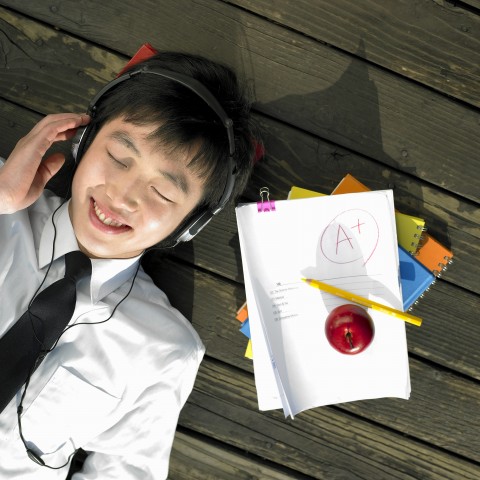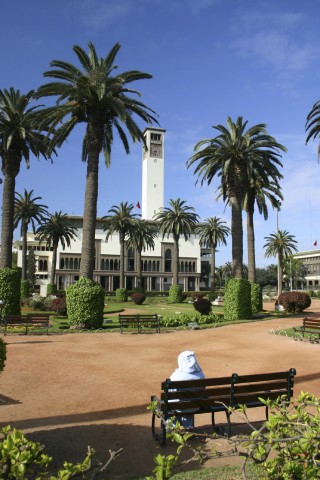
I get it, when learning a language we always want to be positive and say Yes! to everything that comes our way. New experiences, new skills, more language practice…
However, we need to learn how to say no as well. And not just that, but also how to use negative sentences.

If you want to master negation in Arabic, keep reading. In this article, we’ll look at how to…
- …form negative sentences in Arabic (for both nominal and verbal sentences).
- …answer yes-or-no questions correctly and politely.
- …use other common negative expressions such as “never,” “no one,” and “nowhere.”
Sure, sometimes saying no isn’t easy…especially for us people-pleasers. But I assure you it will be (at least from a language-learning point of view!), after you’ve read this.
Let’s waste no more time, then. Here’s everything you need to know about forming negatives in Modern Standard Arabic!
 Table of Contents
Table of Contents
- What is a Negative Sentence?
- Negatives with Verbs
- Negatives without Verbs
- Answering “Yes-or-No” Questions
- Useful Negative Words and Phrases
- How Our Website Can Help
1. What is a Negative Sentence?
A negative sentence says that something is false or that something has not happened. In English, for example, we build negatives by adding the word “not” after a helping verb (do, have, be, etc.).
- Dave is not happy.
- We did not go to work today.
There are several different Arabic negation particles used to negate verbs. In Modern Standard Arabic, the most commonly used ones are: لا, لَمْ, لَنْ (lā, lam, lan).
Another thing to keep in mind when creating negative sentences in Arabic is that you’ll need to look at the type of sentence you’re negating. Is it a nominal sentence or a verbal sentence?
2. Negatives with Verbs
As we just mentioned, there are two types of sentences in Arabic. Depending on the word with which it starts, a sentence can be verbal (when it starts with a verb) or nominal (when it starts with a noun).
A verbal (فِعْلِيَّة [fiʿliyyah]) sentence must contain at least a verb and a subject to be meaningful. For example:
أَعيشُ في مِصر.
ʾaʿīšu fī miṣr.
I live in Egypt.
Or:
يُحِبُّ هاني السَفَر.
yuḥibbu hānī al-safar.
Hany loves traveling.
Negating a sentence with a verb is quite simple: You just need to negate the verb.
In order to perform Arabic verb negation, you just need to add the appropriate negative particle before the verb. Again, the most common Arabic negative particles are: لا, لَمْ, لَنْ (lā, lam, lan).
Let’s learn how to use them!
Negatives in the Past
We use a different particle according to the tense of the verb we’re negating. The negative particle لَمْ (lam) makes a verb past tense.
تَأكُل مَها العَشاء.
taʾkul mahā al-ʿašāʾ.
Maha eats dinner.
لَم تَأكُل مَها العَشاء.
lam taʾkul mahā al-ʿašāʾ.
Maha did not eat dinner.
Note how the tense changed from present to past even though the form of the verb didn’t change one bit. It only gained a لَمْ (lam) before it.

Negatives in the Present
To negate a verb in the present tense, we can use the particle لا (lā).
Like the previous particle, the particle لا (lā) does not change the verb form; it only negates the meaning when placed before it.
أَشْرَبُ الحَلِيْب.
ʾašrabu al-ḥaliyb.
I drink the milk.
لا أَشْرَبُ الحَلِيْب.
lā ʾašrabu al-ḥaliyb.
I don’t drink the milk.
Negatives in the Future
Then we have لَنْ (lan), which makes the verb future tense.
تَأكُل مَها العَشاء.
taʾkul mahā al-ʿašāʾ.
Maha eats dinner.
لَن تَأكُل مَها العَشاء.
lan taʾkul mahā al-ʿašāʾ.
Maha will not eat dinner.
Negatives in the Imperative
To negate the imperative form of a verb, which is used to give instructions and commands, we use the particle لا (lā). In this case, the verb form changes from the imperative form to the present form, conjugated according to the gender and number of the people to whom it’s directed.
اِذْهَبْ إلى الجامِعَة اليَوْم.
iḏhab ʾilā al-ǧāmiʿah al-yawm.
Go to the university today.
لا تَذْهَبْ إِلَى الجامِعَة اليَوْم.
lā taḏhab ʾiilaā al-ǧāmiʿah al-yawm.
Don’t go to the university today.
3. Negatives without Verbs
Nominal sentences (اِسْمِيَّة [ismiyyah]) are sentences that start with a noun. They usually consist of a noun, followed by either a noun, an adjective, a verb, or a prepositional phrase. Here, we’re concerned with all these combinations except for the one that contains a verb, since that one will be negated the same way that verbal sentences are negated.
Don’t worry. You’ll need to use a different, but still simple, approach. In Modern Standard Arabic, you’ll need to insert the appropriate conjugation of ليس (laysa).
| ليس (to not be) | ||
| English | Standard Arabic | |
| Singular | I am not | لَستُ (lastu) |
| you (masc.) are not | لَستَ (lasta) | |
| you (fem.) are not | لَستِ (lasti) | |
| he is not | لَيسَ (laysa) | |
| she is not | لَيسَت (laysat) | |
| Dual | we are not | لَسنا (lasna) |
| you are not | لَستُما (lastumā) | |
| they (masc.) are not | لَيسا (laysā) | |
| they (fem.) are not | ليَسَتا (laysatā) | |
| Plural | we are not | لَسنا (lasnā) |
| you (masc.) are not | لَستُم (lastum) | |
| you (fem.) are not | لَستُنَّ (lastunna) | |
| they (masc.) are not | لَيسوا (laysū) | |
| they (fem.) are not | لسنَ (lasna) | |
Here’s an example of a nominal sentence in Arabic:
هُوَ طَوِيل.
huwa ṭawil.
He is tall.
هُوَ لَيْسَ طَويلاً.
huwa laysa ṭawīlan.
He is not tall.

On the other hand, Egyptian Arabic negation is quite different in this regard: You only need to insert مش (miš) between the subject and the predicate, and it doesn’t change according to number or gender, unlike in Modern Standard Arabic. Simple and easy!
أَنا لِبنانِيَّة.
ʾanā lebnāniyyah.
I am Lebanese. [f.]
أَنا مِش لِبنانِيَّة.
ʾanā meš lebnāniyyah.
I am not Lebanese. [f.]
4. Answering “Yes-or-No” Questions
There are two types of questions: open-ended and closed-ended. A closed-ended question is usually one you can answer with a “yes” or “no,” without having to give any other explanation. Let’s see how to answer these. In English, for example, we say: “Yes, I do,” or “No, I don’t.”
Logically, to answer a yes-or-no question in Arabic, we start with نَعَم (naʿam) meaning “yes” or لا (lā) meaning “no.” In Arabic, the sentence in question is repeated again in the answer after yes or no.
هَل ذاكَرتَ اليَوم؟
hal ḏākarta al-yawm?
Did you study today?
. لا، لَم أُذاكِر اليَوم
lā, lam ʾuḏākir al-yawm.
No, I didn’t study today.
نَعَم، ذاكَرتُ اليَوم.
naʿam, ḏākartu al-yawm.
Yes, I studied today.

5. Useful Negative Words and Phrases
Now that you know more about the Arabic negation system, how about we look at some commonly used expressions you’ll need to sound like a native?
Did you know, for example, that the word “never” can be translated in two different ways in Arabic, depending on the verb tense you’re using?
If you’re speaking about the past, use قَطُّ (qaṭṭ), a word that means “never,” “ever,” or “at all.”
لَمْ أَفْعَلْ ذٰلِكَ قَطّ.
lam ʾafʿal ḏٰalika qaṭṭ.
I have never done that.
If you’re speaking about the future, however, you’ll need to use another word: أَبَداً (ʾabadًan), which means “always,” “forever,” or “ever.”
لَنْ أَزُورَهُ أَبَداً.
lan ʾazūrahu ʾabadan.
.I will never visit him
Remember, قَطُّ (qaṭṭ) and أَبَداً (ʾabadًan) can only be used with the negation.
Here are some more useful expressions to go with negative sentences:
- nowhere / not anywhere: لا مَكان (lā makān)
- no one / nobody: لا أَحَد (lā ʾaḥad)
- nothing / not anything: لا شَيء (lā šaīʾ)
- neither…nor: لا… وَلا (lā…walā)
6. How Our Website Can Help

If you want to learn more Arabic grammar rules and vocab, make sure you have a look at ArabicPod101.com. Here, you’ll find all the resources you need to make your language learning journey as interesting and fun as possible.
You’ll be able to practice your listening skills with podcasts and audio lessons, expand your vocabulary with word lists and key phrases, and learn great strategies for studying Arabic more efficiently and effectively.
If you want to learn this amazing language in order to travel to an Arabic-speaking country, you cannot miss our travel Survival Course. Knowing some Arabic will help you be safe during your trip abroad, and being able to understand and communicate with the locals will make your adventures even more unforgettable…
Of course, I hope that you’ll be able to say yes to all the invitations and offers you’ll receive… But, well, at least you now know how to say “no” correctly (from a grammatical point of view)!
And, if you’re studying Arabic for work or study reasons, make that commitment and start using our features to practice and improve every day. The content available here will keep you motivated in your Arabic studies and will help you reach your language-learning goals in no time at all!
Before you go, we’d love to hear from you. How has this article helped you? Is anything still unclear about negation in Arabic? We’ll do our best to help you out!

Tenses in the Arabic Language: All You Need to Know

What is a verb?
Along with nouns, verbs are the most important part of any sentence. They are the words we use to describe an action (يُغَنّي [yuġannī] – he sings), a state of being (يوجَد [yūǧad] – he exists), or an occurrence (يُطَوِّر [yuṭawwir] – he develops), and they usually agree with the subject, which is who or what performs the action described.
Basically, every sentence needs a verb to be complete—and this is why it’s so important to get them right when learning a foreign language! This includes using the right tenses, hence this article on tenses in the Arabic language.

We’ll admit that Arabic verbs are one of the most challenging aspects of learning this beautiful and complex language, but don’t worry. In this article, we’ll have a look at the main points you need to learn in order to use Arabic verbs with no problems!
We’ll look at the Arabic root system, which is useful for learning verbs and gaining a better understanding of the language itself. In addition, we’ll show you how to build the different verb forms and tenses using the two verb aspects in Arabic.
Don’t worry if this all sounds too complicated and grammar-heavy (it’s normal to feel that way!). We’ll explain each concept thoroughly in the following paragraphs, simplifying them as much as possible so you can grasp them quickly and put them to good use throughout your Arabic language-learning journey!
 Table of Contents
Table of Contents
1. The Root System
To understand Arabic verbs, one must first look at the verb root system. Like other Semitic languages, Arabic has a complex and unusual way of building words from a basic root. In fact, most Arabic words are constructed from a three-letter (trilateral) root.
According to this system, a pattern of three letters serves as the foundation for all words in the same semantic field (i.e. related in meaning).
Let’s take for example ‘k-t-b’ (كتب), which is a trilateral root for words that have to do with “writing“:
- kitāb كِتَاب – “book”
- kātib كاتِب – “writer”
- maktab مَكتَب – “desk” or “office”
- maktabah مَكتَبة – “library” or “bookshop”

2. The Root System in Verbs
When it comes to Arabic verb roots, the most important thing to keep in mind is that each trilateral root can take up to fifteen possible verb forms. However, there are ten forms that are most common and those are what language learners usually focus on.
One can create different verbs from these forms by adding prefixes, suffixes, and different signs to the root consonants, though all are related to the general meaning of the root. Let’s have a look at the ten different forms of the verb فعل (to do):
- Form 1: فَعَلَ (faʿala)
This is the basic and general meaning of the root verb.
- Form 2: فَعَّلَ (faʿʿala) [with the doubling of the sound of the letter ع]
The second form makes the verb transitive, with an added meaning that the action is done to someone or something. It’s built by doubling the middle letter of the root.
- Form 3: فاعَلَ (fāʿala)
This form also makes the verb transitive, and it also means that the action is done with someone or something else.
- Form 4: أفْعَلَ (ʾafʿala)
This is a causative and transitive form (requires an object).
- Form 5: تَفَعَّلَ (tafaʿala)
Form five is the reflexive, which means that the subject and the direct object are the same.
- Form 6: تَفاعَلَ (tafāʿala)
The sixth form is the reflexive or passive version of form 3.
- Form 7: اِنْفَعَلَ (infaʿala)
This is the passive version of form 1.
- Form 8: اِفْتَعَلَ (iftaʿala)
This is often a reflexive version of form 1, with different nuances. It’s the equivalent of “make up” in English, as in “make up lies.”
- Form 9: اِفْعَلَّ (ifʿalaّ) [with the doubling of the sound of the letter ل]
This verb form is quite rare, but it conveys the meaning of acquiring a color or a physical defect.
- Form 10: اِسْتَفْعَلَ (istafʿala)
This verb is generally used to mean “to consider something to be ___”
Keep in mind that the forms introduced here are in the third person past tense. This system, although complex, can be extremely helpful when learning Arabic. Understanding the system well will allow you to correctly guess the meaning of words you don’t know by recognizing their roots and structure!
Also remember that not all forms are used as frequently, so you can first focus on the ones that are commonly used and then advance to other ones as you go on.
Another thing: Not all verbs use all of the forms. Certain verbs are used with certain forms much more commonly than others, so it suffices to understand the meaning of the form; the rest will make sense as you study.
3. The Tenses
Verb tenses are used to express when an action takes place. In Arabic, there are two main tenses: the past tense and the present simple. Then there’s the imperative mood, which is considered to be the third tense in Arabic grammar.
Now, let’s have a closer look at Arabic tenses and how to form them.

A- The Present Tense
First we have the present tense. In Arabic, this tense is used to express both habitual and ongoing actions. The only way to emphasize the difference is by using adverbs like:
- الآن (al-ʾān) – “now”
[for ongoing actions]
- كُلَّ يَوم (kulla yawm) – “every day”
[for habitual actions]
For example:
أَذهَبُ إلى الجامِعَة كُلَّ يَوم.
ʾaḏhabu ʾilā al-ǧāmiʿah kulla yawm.
“I go to the university every day.”
أَتَحَدَّثُ مَع أُمي الآن.
ʾataḥaddaṯu maʿ ʾumī al-ʾān
“I am talking to my mom now.”
Have a look at the table below for an example of conjugation for the verb فَعَلَ (to do). You can form a negative of this tense by adding the prefix لا before mentioning your verb.
| Present tense | Negated present tense | |
| أَنا (ana) – “I” | أَفعَل (ʾafʿal) | لا أَفعَل (la ʾafʿal) |
| أَنتَ (anta) – “you” masc. | تَفعَل (tafʿal) | لا تَفعَل (la tafʿal) |
| أنتِ (anti) – “you” fem. | تَفعَلين (tafʿalīn) | لا تَفعَلين (la tafʿalīn) |
| هُوَ (huwa) – “he” | يَفعَل ( yafʿal) | لا يَفعَل (la yafʿal) |
| هِيَ (hiya) – “she” | تَفعَل ( tafʿal) | لا تَفعَل (la tafʿal) |
| نَحنُ (naḥnu) – “we” | نَفعَل (nafʿal) | لا نَفعَل (la nafʿal) |
| أَنتُم (ʾantum) – “you” pl. masc. | تَفعَلون (tafʿalūn) | لا تَفعَلون (la tafʿalūn) |
| أَنتُما (ʾantuma) – “you” dual masc. | تَفعَلان (tafʿalān) | لا تَفعَلان (la tafʿalān) |
| (ʾantunna) أَنتُنَّ- “you” pl. fem. | تَفعَلنَ (tafʿalna) | لا تَفعَلنَ (la tafʿalna) |
| هُم (hum) – “they” | يَفعَلون (yafʿalūn) | لا يَفعَلون (la yafʿalūn) |
| هُما (huma) – “them” dual | يَفعَلان (yafʿalān) | لا يَفعَلان (la yafʿalān) |
Adding the prefix سَـ to the beginning of the present tense form changes the verb to the future tense.

B- The Past Tense
The use of the past tense in Arabic is pretty straight-forward: just use it as you would the English simple past! In Arabic, the third person form of the past tense is the standard (or dictionary) form of a verb. This is the form you use to look a verb up in a dictionary.
- ★ ذَهَبنا إلى الإسكَندَرِيَّة في السَنَةِ الماضِيَة
ḏahabnā ʾilā al-ʾiskandariyyah fī al-sanaẗi al-māḍiyah
“Last year we went to Alexandria.”
To negate the Arabic past tense, you can use the prefix لم before the present tense verb, with some changes. Have a look at the table below for an example using the same verb, فَعَلَ (to do).
| Past tense | Negated past tense | |
| أَنا (ana) – “I” | فَعَلتُ (faʿaltu) | لَم أَفعَل (lam ʾafʿal) |
| أَنتَ (anta) – “you” masc. | فَعَلتَ (faʿalta) | لَم تَفعَل (lam tafʿal) |
| أنتِ (anti) – “you” fem. | فَعَلت (ifaʿalta) | لَم تَفعَلي (lam tafʿalī) |
| هُوَ (huwa) – “he” | فَعَلَ (faʿala) | لَم يَفعَل (lam yafʿal) |
| هِيَ (hiya) – “she” | (faʿalat) فَعَلَت | لَم تَفعَل (lam tafʿal) |
| نَحنُ (naḥnu) – “we” | فَعَلنا (faʿalna) | لَم نَفعَل (lam nafʿal) |
| أَنتُم (ʾantum) – “you” pl. masc. | فَعَلتُما (faʿaltuma) | لَم تَفعَلوا (lam tafʿalū) |
| أَنتُما (ʾantuma) – “you” dual masc. | فَعَلتُم (faʿaltum) | لَم تَفعَلا (lam tafʿalā) |
| – (ʾantunna) أَنتُنَّ”you” pl. fem. | فَعَلتُنَّ (faʿaltunna) | لَم تَفعَلن (lam tafʿaln) |
| هُم (hum) – “they” | فَعَلوا (faʿalu) | لَم يَفعَلوا (lam yafʿalū) |
| هُما (huma) – “them”dual | فَعَلا (faʿala) | لَم يَفعَلا (lam yafʿalā) |
4. Arabic Verbs: A Summary
As you’ve seen, learning how to use verbs and verb tenses in Arabic can be quite tricky, but it’s certainly one of the most important aspects of learning this beautiful and interesting language!
We hope that with this short guide to Arabic verb tenses, you were able to gain some insight into how the root system works in Arabic as well as how to form and use the four main verb tenses.
If you want to learn more about grammar, conjugations, and more while having access to some great Arabic learning material and info, visit ArabicPod101.com. Here you’ll find lessons for learners at all levels, podcasts, grammar material, word lists, dictionaries, and all the right tools you need to learn Arabic—whether you’re a beginner who wants a full course or an advanced learner who just needs to refine your skills.
So what are you waiting for? Start learning and practicing Arabic with us every day, and you’ll be able to master the use of Arabic verbs in no time at all!
Before you go, don’t hesitate to let us know if you have any questions about this, or if something in the article wasn’t clear. We look forward to hearing from you!

How Long Does it Take to Learn Arabic?

Everyone agrees: Learning a foreign language is an amazing (if hard) and fulfilling process. By learning to speak, understand others, and think in a language different from our own, not only do we add a new skill to our repertoire, but we can also change the way we see the outside world and our relationship to it.
Now for the question at hand: How long does it take to learn Arabic, and is it worth it?
Well, consider the fact that there are more than ten words for “love” in Arabic—and over 100 words for “camel”! I mean, these facts will certainly have an impact on the way you think about your love life…and about those amazing desert creatures!

Learners of Arabic would all love to dedicate endless hours to studying the language and all its nuances. But, in our society, time is money and reality can be quite different.
Due to these time constraints, it makes sense to look for the fastest and easiest ways to learn a language so that we can start using it as soon as possible…maybe to find a better job, to travel, or to speak with a loved one.
We would all like to know exactly what time commitment we’re looking at, so that we can make plans and have expectations…
The truth is, however, that there’s no one best way to learn Arabic—and above all, there’s no set timetable for it!
Everyone learns in a different way, and how quickly you can learn depends on a wide range of factors.

In this article, we’ll look at some of the factors that will affect your learning and how to learn Arabic efficiently to reach your goals as fast as possible.
 Table of Contents
Table of Contents
- Experience
- Learning Style
- Approach
- How Long Does it Take to Achieve Beginner/Intermediate/Advanced Level?
- How Our Website Can Help
Experience
One of the most important factors that governs how long it takes to learn Arabic (or any language) is your personal experience with languages.
The Language(s) You Speak
What is your native language? And what other foreign languages do you speak?
Yes, this will actually make a difference in how fast you learn Arabic. If, for example, you already speak Hebrew or Amharic (which are Semitic languages, like Arabic), you’ll learn much faster than you would as a native English speaker. Also, if you speak French, it will be easier to learn Arabic dialects that borrow heavily from French, such as Moroccan Arabic and Algerian Arabic.
If, however, you’re a native speaker of any Indo-European language, you’re in no luck… Arabic is considered one of the most challenging languages to learn.
Don’t worry, though. This doesn’t mean it’s impossible, just that it’s a good challenge.
So get down to it!

Your Previous Language Learning Experience
Another essential aspect to take into consideration is your previous experience in language learning.
Have you ever studied another language before?
If you already speak a foreign language fluently, or were raised bilingual, it will probably be easier and faster for you to learn Arabic. Several studies have shown that bilinguals are able to learn a third language with more ease because they’re naturally more used to being exposed to a new language.
Even if you’re not bilingual, having studied and learned another language might help, even if we’re just talking about high school French. Being accustomed to memorizing words and looking at different letters and symbols is a good skill that your language-learning mind will remember.
So, the skills that you develop in one language will actually help you gain fluency in another, even if the two are completely unrelated!
Your Previous Grammar Knowledge
One of the first steps you should take is to find out how the language works. This means knowing and understanding its structure and grammar.
If you already have experience studying syntax and grammar, even if it was only in your native language, it will make it easier and quicker for you to study the grammar and syntax of another language.
So, it’s always a good idea to gain some grammar foundations if you plan to start learning Arabic (or any other language).

Learning Style
The way you learn and study is another essential factor in determining how long it will take you to become fluent in Arabic.
Your Methods
If you limit your learning and studying to a classroom setting, even if you attend every day, it will probably take you longer to feel confident using your language skills.
Try to expose yourself to Arabic outside the classroom and you’ll substantially reduce the time you need to learn it!
Try reading the news, watching movies and series in Arabic, or listening to Arabic podcasts about topics that interest you. Of course, finding a language-exchange partner to practice your conversation skills with will also be very useful and make you fluent faster!
Your Time
There’s another aspect we haven’t yet mentioned, but it’s the most important one when determining how long it takes to learn Arabic: the time you spend studying it!
If you want to learn fast, it goes without saying that you’ll need to dedicate as much time as you can to studying.
Daily practice is an ideal setup, and research has proven that learners who can dedicate an hour a day to learning—whether memorizing new words, studying grammar rules, or watching a series on Netflix—learn significantly faster than those who only attend classes.

And of course, if it’s an option for you, full immersion is best. If you can travel to an Arabic-speaking country and live there for a short (or long) period of time, that will make a big difference!
Approach
Another key factor that will determine how fast you learn Arabic is your approach. It can really make a huge difference!
Your Motivation
It’s no secret that staying motivated is essential for learning any new skills, and this is all the more true for foreign languages.
Why do you want to learn Arabic?
Try to have this clear in your mind and, for maximum efficiency, set weekly (or even daily) goals that remind you of it. This will help you stay motivated so that your interest in learning does not fade.
Your Attitude
Keeping your motivation up will help you feel like you’re learning more easily and quickly, and it will be essential for maintaining a positive attitude during your language learning journey!
To see learning as a fun and interesting activity that you’re choosing to do, rather than a chore you’re forced to do, is key.
Remember: Learning a foreign language will open your mind and your horizons, and give you a great set of skills you’ll be able to use in your day-to-day life.
When you think about it this way, the process will be more enjoyable and much quicker!
How Long Does it Take to Achieve Beginner/Intermediate/Advanced Level?
So, let’s get to the point.
Even if it’s hard to say for sure, we’ve tried to make an estimate as to how long it might take you to reach different levels of Arabic (beginner, intermediate, and advanced).
For English speakers, Arabic may be one of the most difficult languages to learn, but that makes it all the more exciting and rewarding!

Beginner
A beginner speaker of a language will be able to introduce themselves, understand simple sentences when spoken slowly and carefully, and ask basic questions (probably making some mistakes along the way).
If you just want to be able to greet people and order a meal, you can get by with the basic reading and speaking skills you gained achieving this level.
FSI learning timeline findings estimate that, to achieve the beginner level in Arabic, you’ll need approximately 700 hours of study. This means that if you dedicate about 15-20 hours a week to learning Arabic, you’ll achieve this level in about 8 months.
Intermediate
At the intermediate level, you’ll be able to engage in most everyday conversations (if spoken slowly) and ask questions as needed to make sure you understand. This level will also allow you to read the news and watch videos in Arabic without major problems. If you’re traveling, you’ll be able to have interactions with the locals about familiar subjects, as well as ask for and follow directions.
To reach an intermediate level, it’s estimated you’ll need 1000-1200 hours of study time (including classes, homework, and practice time).
If you’re serious about learning Arabic fast and are motivated, you can do this in about a year by dedicating at least 20 hours a week to studying.
Advanced
If you want to achieve fluency, this is what you’re aiming for. With advanced language skills, you’ll be able to navigate any kind of situation that may arise in your daily life and have complex conversations with native speakers.
You’ll be able to watch films without subtitles and read all kinds of books in Arabic. You’ll basically be fluent (even if there will always be something more to learn about this intricate and beautifully complex language).
It’s estimated that for an English speaker to learn Arabic properly, at least 2200 hours of Arabic classes are required. This means that, if you want to speak Arabic fluently in a year, you’ll need to study it full-time.
If you’re not in a rush, you can learn the language in about two years with around 20 hours a week dedicated to studying and practicing.
That said, all these timeframes are estimates and one’s language learning progress really depends on many different factors.
How Our Website Can Help
What are you waiting for? The best time to start learning a new language is now!
The sooner you start learning, the faster you’ll start speaking Arabic and achieve your language goals!
On ArabicPod101.com, you’ll find all kinds of language learning content to make your journey smooth and easy to navigate: lessons for all levels, vocabulary lists, a dictionary, blog posts, etc.

How long it takes to learn Arabic mainly depends on how much time you’re willing to dedicate to it.
Our Arabic courses and resources are specifically designed to offer you all the right tools to learn the language as quickly and easily as possible, so you can know that you’re spending your precious time well!
Whether you’re a beginner looking for a full-immersion approach or an advanced speaker who just wants to refine your skills, you’ll definitely find what you’re looking for here.
Before you go, let us know in the comments if this article helped you. Do you feel more prepared now to take on the challenge of learning Arabic? We look forward to hearing your thoughts!

Impress Native Speakers With These Arabic Proverbs

Proverbs are popular sayings that provide a little dose of wisdom, a truth that is sometimes so obvious that it’s overlooked.
Can you think of a proverb in your native language that touched you in an important moment of your life?
The Arabic language is so rich and so widely used that it offers countless idiomatic sayings and expressions. If you want to sound like a native speaker, you’d better learn some of these Arabic proverbs yourself! Doing so is a great way to let your language skills shine, and it will help you better understand the culture so you can fit right in!

As they say, “There is no time like the present”! Learn the thirty most used Arabic proverbs now and you’ll be certain to leave a good impression!
Keep in mind that most of the entries on our list are Egyptian Arabic and Levantine Arabic proverbs.
 Table of Contents
Table of Contents
- Bedouins, Belly Dancers, and Dogs: Egyptian Arabic Proverbs
- Bald Men, Roosters, and Paradise: Levantine Arabic Proverbs
- Bonus: A Modern Standard Arabic Proverb
- Conclusion
1. Bedouins, Belly Dancers, and Dogs: Egyptian Arabic Proverbs
There are some truths in life that are best expressed through vivid imagery. Let’s start our list with several unique Egyptian Arabic proverbs about life, friendship, and more.
القِرد في عين أُمُّه غَزال
el-ʾerd fī ʿen ʾommoh ġazal
Literal translation: The monkey is a gazelle in the eyes of his mother.
English equivalent: Beauty is in the eye of the beholder.
Meaning: This classic proverb means that the perception of beauty is subjective.

أَدعي عَلى وَلَدي وأَكرَه مِن يِقول آمين
ʾadʿī ʿalā waladī wʾakrah men yeʾūl ʾāmīn
Literal translation: I curse my own child, but I hate whoever says “amen.”
Meaning: This proverb is about having the right to criticize those closest to you…but then jumping to their defense if someone else criticizes them. We all know the feeling!
آخرِةْ المَعروف الضَرب بِالكُفوف
ʾāḫret el-maʿrūf el-ḍarb belkofūf
Literal translation: The end result of a good deed is a slap with the palms.
English equivalent: No good deed goes unpunished.
Meaning: This is usually said when your kindness backfires on you. For example, when you do a good deed but get nothing in return—or worse, you get a “slap” (hopefully in a metaphorical sense!).
إللي إيدُه في المَيَّة مِش زَيّ إللي إيدُه في النار
ʾellī ʾeīdoh fī el-mayyah meš zayy ʾellī ʾīdoh fī el-nār
Literal translation: The one whose hand is in fire is not like the one whose hand is in water.
English equivalent: Easier said than done.
Meaning: You can’t really compare the actions (or reactions) of those personally involved in a difficult matter (with a hand in the fire!) to those who are not directly affected and just commenting on it (with their hand in water).
لَمّا اِتفَرَّقِت العُقول كُلّ وَاحِد عَجَبُه عَقلُه، ولَمّا اِتفَرَّقِت الأَرزاق ماحَدِّش عَجَبُه رِزقُه
lammā etfarraʾet el-ʿoʾūl koll wāḥed ʿagaboh ʿaʾloh, w lammā etfarraʾet el-ʾarzāʾ māḥaddeš ʿagaboh rezʾoh
Literal translation: When brains were passed out, everyone was pleased with their brain; but when fortunes were given out, no one was satisfied with their fortune.
Meaning: This means that people are often dissatisfied with their lot in life, but they rarely question their way of thinking.
إللي يِتلِسِع مِن الشوربَة يِنفُخ في الزَبادي
ʾellī yetleseʿ men el-šūrbah yenfoḫ fī el-zabādī
Literal translation: Whoever gets burned by soup blows on yogurt.
English equivalent: Once bitten, twice shy.
Meaning: This refers to the fact that an unpleasant experience induces caution.
إمشي في جَنازَة، وَلا تِمشي في جَوَازَة
ʾemšī fī ganāzah, walā temšī fī gawāzah
Literal translation: It’s better to arrange a funeral than a marriage.
Meaning: This saying is used to dissuade people from playing the match-maker. If you arrange a marriage and it doesn’t work out, you’ll get blamed for it. In that context, attending a funeral would be much easier!
الدُنيا زَيّ الغازِيَّة، تِرقُص لِكُلّ وَاحِد شِوَيَّة
el-donyā zayy el-ġāzeyyah, terʾoṣ lekoll wāḥed šewayyah
Literal translation: The world is like a belly-dancer: it dances a little while for everyone.
English equivalent: Every dog has its day.
Meaning: Let’s admit it, the Arabic version is a bit more poetic! The proverb means that everyone is successful at some point in life.

إللي عَلى راسُه بَطحَة يِحَسِّس عَليها
ʾellī ʿalā rāsoh baṭḥah yeḥasses ʿalīhā
Literal translation: Whoever has a head-wound keeps feeling it.
English equivalent: The tongue ever turns to the aching tooth.
Meaning: As the tongue turns to the aching tooth or a wounded person keeps checking their wound, our thoughts keep returning to those things that worry us most.
نِقول تور يِقولو اِحلِبوه
neʾūl tor yeʾūlū eḥlebūh
Literal translation: I say to him, “It’s a bull,” and he responds “Milk it.”
Meaning: This hilarious saying makes a good point. It refers to a situation where someone goes on and on with the same argument, even though he has already been contradicted repeatedly.
إذا كان حَبيبَك عَسَل ما تِلحَسوش كُلُّه
ʾezā kān ḥabībak ʿasal mā telḥasūš kolloh
Literal translation: Even if a friend is honey, don’t lick them all up.
Meaning: We all know how important friends are in life. But, even if they’re as sweet as honey, we shouldn’t abuse their kindness.
كُلُّه عَند العَرب صابون
kolloh ʿand el-ʿarb ṣābūn
Literal translation: For the Bedouin, it’s all soap.
Meaning: People without taste (poor Bedouins, in this case…) can’t really distinguish if something is of good quality or not.

إللي ما يِعرَفش، يِقول عَدس
ʾellī mā yeʿrafš, yeʾūl ʿads
Literal translation: He who doesn’t know, says “lentils.”
Meaning: Those who don’t know what really happened will just say anything as an explanation (“lentils” is probably just the first thing that came to mind!).
بَعد ما شاب وَدّوه الكُتّاب
baʿd mā šāb waddūh el-kottāb
Literal translation: After his hair went gray, they took him to school.
English equivalent: You can’t teach an old dog new tricks.
Meaning: This means that it is often hard to teach older people new ways and habits, and that it might be too late.
صاحِب بالين كَدّاب وصاحِب تَلاتَة مُنافِق
ṣāḥeb bel-īn kaddāb ūṣāḥeb talātah monāfeʾ
Literal translation: ِA person of two minds is a liar, and a person of three minds is a hypocrite.
Meaning: According to this saying, a person who tries to do two things at a time is fooling himself, and a person who tries to do three things at once is even more self-deceived.
2. Bald Men, Roosters, and Paradise: Levantine Arabic Proverbs
In case you were wondering, this creative use of language is quite prominent in Levantine Arabic proverbs, too. Let’s dive in!
البَحصَة بِتِسنِد خابيَة
el-baḥṣah betesned ḫābyah
Literal translation: A pebble can support a barrel.
Meaning: This proverb expresses that even a little effort can go a long way.
الديك بِيْموت وعينو بِالمَزبَلَة
el-dīk beymūt wʿīnū belmazbalah
Literal translation: The rooster dies with his eye still on the dunghill.
English equivalent: A leopard can’t change its spots.
Meaning: This proverb conveys the idea that no one can change their nature. It’s most often used to describe negative qualities and behaviors.
الحَرَكَة بَرَكَة
el-ḥarakah barakah
Literal translation: Movement is a blessing.
Meaning: If you want to get things done, you need to act!
كُل ديك عَ مَزبَلتُه صَيّاح
kol dīk ʿa mazbaltoh ṣayyāḥ
Literal translation: Every rooster crows on its own dunghill.
Meaning: Roosters again. This time, though, the proverb is about how it’s easy to feel confident on your home turf. Everyone does.

إللي بياكُل العُصيّ مِش مِتل إللي بِيعِدّها
ʾellī byākol el-ʿuṣeī meš metl ʾellī beīʿeddhā
Literal translation: Receiving (blows from) a stick is not the same as counting them.
Meaning: This is similar to the “hand in fire, hand in water” we saw earlier on. Definitely not the same. So do not comment on someone’s actions (or reactions) when you’re not the one going through a hard time.
الدَم ما بِيصير مَي
el-dam mā beyṣīr maī
Literal translation: Blood does not become water.
English equivalent: Blood is thicker than water.
Meaning: This proverb means that family bonds are always stronger than love or friendships.
التِلم الأَعوَج مِن التور الكبير
el-telm el-ʾaʿwag men el-tūr el-kbīr
Literal translation: The crooked furrow is caused by the big bull.
English equivalent: A fish rots from the head down.
Meaning: This one means that leadership is always the root cause of an organization’s failure.
ما تقول فول لَيْصير بِالمَكيُول
mā tʾūl fūl layṣīr belmakyūl
Literal translation: Don’t say “beans” until they are on the measuring scale.
English equivalent: Don’t count your chickens before they hatch.
Meaning: Don’t count on something before you’re certain it’s going to happen.
الإسكافي حافي والحايِك عِريان
el-ʾeskāfī ḥāfī welḥāyek ʿeryān
Literal translation: The shoemaker is barefoot and the weaver is naked.
nglish equivalent: The shoemaker’s children always go barefoot.
Meaning: This saying describes how we tend to neglect the things closest to us, or fail to apply the advice we give others to our own lives.
اِحتَرنا يَا قَرعَة مِن وين بِدنا نبوسِك
eḥtarnā yā ʾarʿah men weīn bednā nbūsek
Literal translation: Oh bald man, we’re confused about where to kiss you.
Meaning: This funny proverb describes someone who’s hard to please. It’s like saying, in English: “There’s no pleasing you.” The strange (and quite humorous) assumption here is that a bald person has more kissable spots on his head to choose from, hence the confusion!

ابنَك هُوَّ وِزغير رَبّيه وهُوَّ وِكبير خاوِيه
ebnak howwa wezġīr rabbīh w howwa wekbīr ḫāwīh
Literal translation: Discipline your son when he’s young, and be his friend when he grows up.
Meaning: This is pretty straight-forward, but still good parenting advice!
إللي بِدّو يِلعَب مَع القُط بِدّو يِلقى خَرامِيشُه
ʾellī beddū yelʿab maʿ el-ʾoṭ beddū yelʾā ḫarāmīšoh
Literal translation: Whoever plays with a cat will find his claws.
English equivalent: If you play with fire, you’re going to get burned.
Meaning: As we all know, this is a warning that dangerous or risky actions often lead to injury.
الحَكي مِش مِتل الشوفَة
el-ḥakī meš metl el-šūfah
Literal translation: Speaking is not like seeing.
English equivalent: A picture is worth a thousand words.
Meaning: Like its English counterpart, this saying stresses the fact that complex situations and ideas are sometimes best conveyed through sight rather than words.
الجَنَّة بِدون ناس ما تِنداس
el-gannah bedūn nās mā tendās
Literal translation: A paradise without people is not worth stepping foot in.
Meaning: This proverb reminds us to be kind and understanding toward each other, and that misanthropic conduct may lead to misery! What kind of paradise would it be without anyone to share it with?

3. Bonus: A Modern Standard Arabic Proverb
There are also proverbs in Modern Standard Arabic, but dialect proverbs are used more often. An example of a Modern Standard Arabic proverb is:
لَوْلا اِختِلاف الأَذواق، لَبارَت السِلَع
lawlā iḫtelāf ul-ʾazwaq, labārat al-selaʿ
iteral translation: Were it not for differences of taste, goods would go unsold.
English equivalent: Variety is the spice of life.
Meaning: Different tastes and perspectives give things more value.
4. Conclusion
“All good things must come to an end…”
But it’s not really the end, is it? There’s so much more to learn about the Arabic language!
“Practice makes perfect,” so keep practicing your Arabic skills on ArabicPod101.com. Using all the features we offer (audio podcasts, videos with transcriptions, word lists, a dictionary, and more), you’ll pick up this beautiful and interesting language in no time.
And remember: A pebble can support a barrel, and even a little effort goes a long way. So start practicing!
Before you go: Which Arabic proverb was your favorite, and why?

Overcoming Obstacles in Arabic Grammar

Some people say that you can study a language and never learn the grammar.
They’ve got some compelling points.
But the thing is, after enough time, your brain really will pick up a lot of the patterns of a language and you’ll be able to use it correctly and automatically.
The key concept here is “enough time,” though. As it happens, most people don’t have three years from the beginning of their studies to when they want to use it.
This is especially true of Arabic, whose grammar is different from that of English in several key ways. Why wait for your brain to trial-and-error its way into Arabic grammar when you can just learn the main differences yourself?
That’s why, in this article, we’re going to tell you just what to look for. Keep in mind that this isn’t a complete Arabic grammar guide—you’ll need to follow the links for that. Instead, it’s a kind of waypoint map for what you need to be conscious of as you slowly study and assimilate Arabic grammar into your head.
 Table of Contents
Table of Contents
- General Rules
- Parts of Speech in Arabic
- Arabic Verbs
- Arabic Nouns
- Simple Sentence Structure in Arabic
- Conclusion
1. General Rules

Arabic grammar is a different beast from that of English.
A lot of things are what you might call “opposite.” Not necessarily harder or easier than what you’re used to with English, but instead just starkly different.
Take word order, for example. In Classical Arabic, the verb comes first in the sentence, like this:
- تَحَدَّثتُ مَع زَوْجَتي عَبرَ الهاتِف.
taḥaddaṯtu maʿ zawǧatī ʿabra al-hātif.
“I spoke to my wife on the phone.”
Sometimes, the verb never comes at all—a topic/subject and a predicate is all that you need. These are known as “nominal sentences” in Arabic because they’re structured around nouns instead of verbs.
- رامي مُهَندِس.
rāmī muhandis.
“Rami is an engineer.”
Also, Arabic has more pronouns than English does. Unlike European languages such as Spanish or German, Arabic doesn’t have a “polite” pronoun, but it does have a dual form. This means that we have a separate word for “you” and “they” when you’re talking about exactly two people.
- أَنتُما هادِئان.
ʾantumā hādiʾān.
“You (two) are calm.”
- أَنتُم هادِئون.
ʾantum hādiʾūn.
“You (three or more) are calm.”
In Arabic grammar, pronouns also do interesting things for indicating possession, which we’ll get into a bit later.
Finally, a core concept in Arabic is the idea of word roots, where a set of two to four (usually three) consonants determine the semantic root of an idea. We then add vowels and additional consonants around that root to turn it into different words.
An illustration is worth a thousand words here. The root s-l-m means “whole,” “safe,” or “complete,” and from it has sprung a whole host of words over the centuries. These include: islam, muslim, salaam, taslim, and more.
As you learn more Arabic vocabulary, you’ll be able to use these roots as anchors for your memory.
2. Parts of Speech in Arabic

In traditional Arabic grammar study, there are three parts of speech. Sound like a small number? Arabic actually has the same parts of speech as other languages throughout the world, but they’ve been classified into just three categories according to the Quranic rules of Arabic grammar.
These are:
1. Nouns – اسم (ism)
2. Verbs – فِعل (fiʿl)
3. Particles – حَرف (ḥarf)
Nouns account for a lot of the vocabulary in Arabic grammar, covering what we know in English as nouns, pronouns, adjectives, and adverbs.
Verbs, of course, are the same type of words that you’re used to in other languages. In Arabic, verbs have additional “powers” that deserve their own section (or really, their own article).
Similar to English or German, Arabic verbs can be either “strong” or “weak” (though some people prefer to describe them as “whole” or “broken”) based on their patterns of sound change.
In English, we don’t really have ‘particles,’ though they do exist in many languages of Asia. The concept of a particle in Arabic refers to prepositions, prefixes, conjunctions, and articles.
3. Arabic Verbs

When you’re putting your ideas together in Arabic, you’re going to need some verbs to do so. Although it’s actually possible to make sentences in Arabic without using any verbs, learning and mastering the verb system is an integral part of learning any Arabic beyond simply pointing and grunting.
One interesting thing to note right off the bat is that, in Arabic grammar, verbs are gendered. This is a trait shared by other Semitic languages such as Hebrew. It means that as you speak, you have to take care to use the proper conjugations for men or women depending on your own gender and the gender of your subject.
Another feature that English speakers will find new and interesting is the concept of the dual. This one’s easy to pick up, though. In Classical and Modern Standard Arabic, the dual is a conjugation of a verb designed specifically for two people or two things. So, for one person or thing you use singular; for two, you use dual; and for three or more you use plural.
The tenses are simpler than those in English by far, though they can cause a bit of confusion at times. Arabic doesn’t have a perfect tense corresponding to the English “had done,” so you might get stuck sometimes in longer sentences when you’re looking for just the right way to express a thought you have in English.
In fact, there are only three tenses: the past, present, and future.
However, there are a number of moods, such as the subjunctive, the indicative, and even the jussive—a sort of polite way to give commands in the third person.
- لِيفعَله
li-yaf‘al-hu
“Let him do it.”
Conjugating verbs in Arabic can be different from what you’re used to with European languages. In languages like Spanish, Italian, and French, verbs conjugate with a series of regular changes to the ending or the root.
In Arabic, you have to also look at the beginning of the word.
For instance, “I write” is aktubu while “he writes” is yaktubu. But saying “they (men) write,” you modify the beginning and ending: yaktubuuna.
This just takes a bit more processing power to deal with at speed when you’re reading Arabic text or listening to the spoken language. It all comes with time.
4. Arabic Nouns

In Arabic grammar, nouns have gender, number, and case, similar to languages like German, Latin, or Russian. The good news is, Arabic only has three cases: nominative, accusative, and genitive.
The genitive case in Arabic is used after prepositions and also to show possession and disambiguation. Genitive sentences in Arabic are quite a bit more common than they are in European languages, interestingly enough.
- قِطَّةُ الْبِنْتِ في الحَديقَةِ.
qiṭṭaẗu l-binti fī al-ḥadīqati.
“The girl’s cat is in the garden.”
- رَنَّ جَرَسُ البابِ.
ranna ǧarasu al-bābi.
“The doorbell rang.”
It’s important to note that the cases in Arabic become greatly simplified when you start learning colloquial varieties such as Egyptian Arabic or Saudi Arabic. Simplified to the point that case endings get totally dropped!
5. Simple Sentence Structure in Arabic

Now that we’ve gotten a closer look at the most important details about Arabic nouns and verbs, it’s time to start learning how to put them together.
Working with simple sentences is a great way for beginners in any language to familiarize themselves with the Arabic grammar basics in this regard. It shows you, in context, how words fit together to turn into ideas. The sentence is a complete encapsulation of a thought. Once you understand how they work, you can start making your own.
In fact, learning Arabic with sentences is kind of like a puzzle game. Look at these three phrases carefully.
- أَيْنَ أَنت؟
ʾayna ʾant?
“Where are you?”
- مِن أَيْنَ أَنت؟
min ʾayna ʾant?
“Where are you from?”
- أَيْنَ المَطار؟
ʾayna al-maṭār?
“Where is the airport?”
Just by looking at the first one, you probably wouldn’t know what أين means. However, by carefully examining the other sentences along with their translations, you can start to learn, by process of elimination, the words for “where,” “from,” “you,” and “airport.”
When you’re dealing with a language like Arabic, which has a lot of differences from English, starting with simple sentences as anchors is a great way to get a good grasp of how your mind needs to function in order to understand the new language. For example, you can see that “where are you” is formed in the same way in Arabic and English, but “where are you from” takes a bit of a turn as “from” goes to the front of the sentence in Arabic.
6. Conclusion
The key study strategy to take home from this is that no matter how convoluted Arabic grammar might seem now, it can be broken down into manageable parts.
This is especially true with Modern Standard Arabic, which is where most of the “really hard stuff” comes from anyway. You can definitely take the slower road of input first, output second there. After all, who would require a first- or second-year student to produce flawless original text in MSA anyway?
By carefully dissecting the sentences and then understanding them as complete expressions of meaning, you’ll assimilate the grammar and syntax of Arabic in a thoughtful, methodical way. Balance grammar study like this with solid examples to memorize, and you’ll be up and running in no time.
Which aspects of Arabic grammar were new to you today, and which ones seem the most difficult so far? We’d love to hear from you in the comments.

Is Arabic Hard to Learn? Yes and No.

“You’re learning Arabic? Wow, I could never do that!”
You’ve probably heard that sentiment, or something like it, dozens of times. Or perhaps you’ve become intimidated hearing it said to other people.
For English-speakers, Arabic has a reputation for being an incredibly tough language to learn. Nobody offers Arabic classes in middle school, and nobody talks about picking up Arabic from watching cartoons.
But does Arabic deserve such a reputation? Is Arabic hard to learn? Could it be that there’s more to a language than its perceived difficulty? Let’s find out!
 Table of Contents
Table of Contents
- Is Arabic Really the Hardest Language?
- Why Arabic is Hard to Learn
- Why Arabic is Easier Than You Think
- What Every New Arabic Learner Should Know
- How to Start Learning Arabic
- What ArabicPod101 Can Do for You
- Conclusion
1. Is Arabic Really the Hardest Language?

The United States government seems to think so.
The Department of State in the U.S. has spent decades teaching languages to people who want to go abroad and serve in the military or as part of the diplomatic corps. According to them, it takes the average motivated learner about eighty-eight weeks of full-time study to become proficient in Modern Standard Arabic.
That’s on the same level as Mandarin, Japanese, and Korean—languages which are also famous for not being a walk in the park.
And when you consider that you might not be quite as motivated as a future diplomat, nor have the resources available to you to study full-time, you might start to get a little worried about your chances.
There’s one more thing that should give you pause. Think about how many Arabic language classes there are available to you, compared to language classes for other, “easier” languages. If Arabic were easier, wouldn’t more people be studying it?
But wait—if Arabic is so hard, how come it’s one of the most-spoken languages on the planet? How come you can go to a mosque in practically any city in the world and find people who can comfortably explain what Classical Arabic scripture means?
As it turns out, the Arabic language is hard in some areas, but it has some easy parts too, which balance out the load.
2. Why Arabic is Hard to Learn

First, though, some details on why Arabic has its reputation.
The first impression that most people have is that Arabic sounds hard. For people used to the consonant-vowel rhythm of Spanish or Japanese, the numerous consonant clusters and rare sounds in Arabic can cause learning difficulty.
Arabic has some “pharyngeal” consonants that are literally made by constricting the throat. Now, it’s important to note that there’s nothing inherently difficult about sounds made from the throat—little children who grow up speaking Arabic do it all the time.
But you probably aren’t used to it if you grew up with a European or East Asian linguistic background (though Danish does actually have some pharyngeal sounds). That means it takes some serious conditioning to make these sounds in isolation, and even more to speak fluently with these sounds in the middle of words.
Another thing that makes the Arabic language hard to learn is the case system.
Cases are word endings that give additional information about which words in the sentence are the subjects, objects, and direct objects. This information is invisible in English, but it’s clear in languages with cases.
For instance, look at these simple sentences:
“The house is hot.”
البَيْتُ جَميل.
al-baytu ǧamīl.
“I entered the house now.”
دَخَلتُ البَيتَ الآن.
daḫaltu al-bayta al-ʾān.
As you can see, the word البيت (al-bayt), meaning “house,” changes in the second sentence because it’s the direct object, as opposed to the first sentence where it was the subject. Modern Standard Arabic-learners have to remember these changes for every noun and adjective—and for both genders!
If all of this has been putting you off, don’t run away just yet. It’s not all bad news when it comes to learning Arabic!
3. Why Arabic is Easier Than You Think

Fortunately, there are definitely some parts of Arabic that are easier to learn than others.
Chief among these is probably the loanwords. In today’s Arabic-speaking world, there’s nobody going around saying that you absolutely must use pure Arabic vocabulary dating back centuries. Take a look at any of the Arabic vocabulary lists floating around, and you’ll see plenty of loanwords, like al-intarnet for “Internet.”
There are also dozens upon dozens of Arabic words that you already know, thanks to language transfer happening in the opposite direction.
Words like سبانخ (sabanekh), or “spinach,” and مطرح (matrah), or “mattress,” have changed over the centuries, but they’re just a few examples of the rich vocabulary brought to Europe from the Middle East.
Another pretty cool thing about learning Arabic is the triliteral root system. Most everybody who’s thought about learning Arabic has heard of how words tend to be formed with three (sometimes up to four or five) consonants, which then stay consistent as vowels and consonants are added in-between the root letters to make other words.
It takes a bit of getting used to, but once you fully understand the system, you’ll see that there’s actually a lot of value in it.
Take a word like ‘-l-m, which has to do with “knowing.” You could learn the words ‘alima (“to know”) and ‘allama (“to teach”) as separate words, but that might be pretty confusing.
However, the consonant being doubled is actually a pattern (called the second form), and it refers to causation and verb transitivity. Teaching is “causing to know,” and that pattern will hold true for tons of other Arabic verbs!
4. What Every New Arabic Learner Should Know

The big question for most Arabic learners is “MSA or dialect?”
That’s because there are many, many articles out there with strong opinions on one side of the debate or the other.
People just learning Arabic should be aware of the fact that Modern Standard Arabic isn’t used day-to-day in Arabic-speaking countries. It’s considered the formal language appropriate for writing and news broadcasts, not for chatting with others.
On the other hand, it’s tough to find good, comprehensive resources for the dialects of Arabic that are actually spoken everywhere in the Middle East and North Africa.
For that reason, ArabicPod101 focuses on both Modern Standard Arabic and spoken dialects of Arabic. This allows you to have a strong base, but also be able to communicate with locals in a natural spoken dialect.
MSA is much more difficult than any dialect, by the way. A lot of grammatical features (such as the cases) have been simplified considerably in actual spoken dialects.
You won’t need to actually speak or write MSA unless you find yourself taking a job in Arabic media, or if you really want to make an impression of formality.
So don’t worry about learning how to produce the complexities of MSA that you see. You’ve just got to be able to understand them.
5. How to Start Learning Arabic

Given the difficult sounds that exist in the Arabic language, you should definitely focus on pronunciation first.
If you can’t correctly hear and produce each sound, then you’ll go through your whole Arabic career with two big problems—you’ll have a heavy accent and you’ll have a really hard time telling similar words apart.
Next, use a good course like ArabicPod101 to guide you through the process of slowly building up your vocabulary and learning to understand the nuances of grammar.
At the same time, make sure to listen to a lot of Arabic through kids’ shows and news broadcasts. It’s totally fine if you don’t understand everything at first, because you’ll notice yourself starting to understand more and more over time.
6. What ArabicPod101 Can Do for You
ArabicPod101 has a huge library of content in excellent MSA. A typical lesson breaks down a conversational topic and introduces a new grammar point as well as a little bit of new vocabulary.
In the supplemental materials, you’ll see related vocabulary with a romanization and a recording of a native speaker pronouncing the word. Once you’ve created an account, you can add these to your flashcards and review them at any time.
This way, when you come across a troublesome word in your daily Arabic study, you can look it up on ArabicPod101 and see if there’s an article or podcast episode about it for you to review.
By the way, there’s a great resource you can take advantage of right now: the ArabicPod101 YouTube channel! Of particular value are the listening comprehension videos, where you can follow along with English, Arabic, and romanized subtitles.
- → Have a look at our list of Simple Strategies for Learning Comfortably at Home and Habits for Highly Effective Language-Learners!
7. Conclusion
In the end, you’ll find that thinking of Arabic as easy or hard has to do with perspective.
Languages aren’t really learned. They’re acquired.
Sure, a language like Modern Standard Arabic, with its relatively artificial grammar, does have some elements that need to be “learned,” but you can also just lay back and let the language come to you.
Languages are only “easy” or “hard” when you put a time limit on yourself to try learning them. If you want to be speaking Arabic fluently within six months, you’ll find it much harder than if you just enjoy your progress and keep your expectations managed.
And if you have the help of a great learning aid like ArabicPod101, you’ll be well-equipped to make that a fun-filled journey.
What things in Arabic do you struggle with the most? Which parts are easier for you? Let us, and your fellow Arabic-learners, know in the comments!

The Most Common Mistakes Arabic Speakers Make

Wouldn’t it be fantastic to speak flawless Arabic?
It’s a language that flummoxes students around the world daily. Even in Arabic-speaking countries, people are divided on what’s really “correct” and “proper” Arabic.
The truth is, you really don’t have to speak Arabic by the book in order to show your respect for the cultures and languages of Arab people. A little really does go a long way!
In this article, you’ll see some of the most common mistakes Arabic speakers make when learning the language, as well as the best ways to overcome them.
 Table of Contents
Table of Contents
- Pronunciation
- Vocabulary Mistakes
- Word Order Mistakes
- Arabic Grammar Mistakes
- Uniquely Arabic Mistakes
- The Biggest Mistake
- Conclusion
1. Pronunciation

Arabic pronunciation involves trying to get your tongue and mouth to do a lot of things they probably aren’t used to. For that reason, a lot of learners end up imperfectly tackling Arabic pronunciation.
One of the classic giveaways of a heavy foreign accent in Arabic is the vowels.
Modern Standard Arabic has just three vowels: /i/ as in “see,” /u/ as in “you,” and /a/ as in “father.”
You’ll also need to pay attention to long and short vowels. In English, “long” and “short” mean an actual change in the vowel sound, but in MSA, it’s literally a vowel that’s held longer or shorter like a musical note. This is a matter of rhythm in the word and in the sentence, so be sure to listen to a lot of Arabic content to get comfortable with the intonation.
Vowels are probably the biggest giveaway, but ask any learner what the hard sounds are in Arabic, and they’ll answer “consonants.” Arabic has whole groups of consonants that are totally absent in most European and Asian languages, meaning that no matter how many other languages you speak, Arabic is probably going to challenge you with its sounds.
The hardest one for most speakers is ع, written as “3” in a lot of unofficial transcription systems because of the Arabic letter’s similarity to the digit. Most sounds in most languages are made with the tongue maneuvering around and tapping the roof of the mouth or otherwise shaping the airflow.
The ع, by contrast, is made by bringing the back of the tongue as far back as possible. In all honesty, it’ll be uncomfortable when you first start doing it, but the more reading and speaking aloud you do, the more natural it will feel.
2. Vocabulary Mistakes

Every language has confusing pairs of words that make learners hem and haw over the right one to use, and this is the type of mistake Arabic-learners need to be cautious of.
In Arabic, these word pairs unfortunately pop up quite frequently. This is especially true if you’re just learning from the written word instead of from audio. You know, the whole vowel-marking thing? Here’s a couple of examples:
الكِليَة (al-kilyah) – “kidney”
الكُلِّيَّة (al-kulliyyah) – “college”
السُكَّر (al-sukkar) – “diabetes,” “surgot”
السُكر (al-sukr) – “drunken stupor”
تَوَابِل (tawabil) – “spice”
تَبَوُّل (tabawwul) – “urination”
Although the triliteral root system does let you easily learn related words, when unrelated words come up that happen to share the same consonants, they really mess with your memory!
The solution here is to listen to tons of Arabic audio. A word like al-koliya is going to come up a lot earlier than al-kilya in your learning, especially if you follow podcasts like ArabicPod101.
If you can connect the written word in your reading exercises to the spoken word from your listening, you’ll avoid confusing them because of a lack of vowel diacritics. Thankfully, almost all of our content on ArabicPod101.com has a vowelled version in case you’re unsure of how a word is pronounced.
Other typical vocabulary mistakes stem from the fact that Arabic makes distinctions that other languages might not. Take the simple conjugation for “and” for example.
وَ (wa) is the word for “and” when it connects two clauses or verbs:
أبي مُدَرِّسٌ و أمّي رَبَّةُ بَيْت.
ʾabī mudarrisun wa ʾummī rabbatu bait.
“My father is a teacher and my mother is a stay-at-home mom.”
تُمَّ (ṯumma) can also be translated as “and,” but it connects two actions in a sequence!
أَكَلتٌ ثُمَّ شَرِبتُ.
ʾakaltun ṯumma šaribtu.
“She ate first and then she drank.”
You can think of translating fa as “and then…” Before you get more advanced in Arabic, it’s totally normal to be translating things in your head. As long as you can think in an Arabic sentence structure, you can compose your sentences in English first.
3. Word Order Mistakes
Another type of mistake in Arabic to watch out for is using incorrect word order. For some people, adjusting to a different word order is a cinch; for others, a different word order ties their brain in knots from the get-go.
Prescriptively speaking, the verb always comes first in an Arabic sentence. However, as you watch more and more videos and TV programs in MSA, you’ll see that they occasionally switch the word order around to add emphasis to a certain part of the sentence.
يَذهَبُ اِبراهيم إلى السوق.
yaḏhabu ʾIbrāhīmu ʾila s-sūq.
“Ibrahim goes to the market.”
Note how the verb ذَهَبَ (ḏahaba), meaning “to go,” is conjugated and placed at the beginning of the sentence. In some European languages, placing the verb before the subject is a marker of a question. Not so in Arabic!
4. Arabic Grammar Mistakes

The most common mistake that even advanced students make in Arabic is failing to correctly make the verb, adjective, and noun agree in a sentence.
So, for instance, a student might write:
مِحوَرُ الشِعر هِيَ الروح. X
miḥwaru al-šiʿr hiya al-rūḥ. X
“The focus of poetry is the soul.” X
When it should actually be:
مِحوَرُ الشِعر هُوَ الروح.
miḥwaru al-šiʿr huwa al-rūḥ.
“The focus of poetry is the soul.”
Modern Standard Arabic has a lot of rules that don’t show up in any of the colloquial dialects that are spoken day-to-day. For that reason, tons of people in Arabic-speaking countries tend to be more comfortable writing in English or French than MSA! A lot of native speakers, for instance, might make mistakes with the dual:
لَدَيَّ أُختان.
ladayya ʾuḫtān.
“I have two sisters.”
لَدَيَّ ثَلاثُ أَخَوَات.
ladayya ṯalāṯu ʾaḫawat.
“I have three sisters.”
Lots of learners end up just using the plural form for two things without thinking. After all, the dual as a grammatical feature is relatively rare in the world’s languages.
5. Uniquely Arabic Mistakes

Up until this point, we’ve been discussing things that might apply to every language in the world. Plenty of languages have hard grammar and pronunciation, after all!
But there are a couple of mistakes that pretty much only Arabic-learners tend to make.
Like the plural forms of words—in Arabic, you kind of just have to memorize them. There are so many exceptions!
Also, numbers tend to trip a lot of people up. The number system in Arabic is beautifully complex (if you’re into that sort of thing), but so complicated that most native speakers tend to ignore its intricacies.
And with colloquial varieties of Arabic spoken in dozens of countries, you’ll often find yourself misunderstood if you use a word from one dialect with speakers of another. You could spend a lifetime learning all the little subtleties of the lexicon, like how دولاب (dulab) means “closet” in Egypt but means “wheel” in most other dialects.
Some people might suggest that you try to “speak Egyptian,” as many people understand Egyptian slang words, but the best way to avoid confusion is to use terms that are as close to MSA as possible if you don’t know the local term.
6. The Biggest Mistake

The biggest mistake is perfectionism. As they say, perfect is the enemy of good enough.
Tons of Arabic students end up letting their hard-earned knowledge slip away for fear of offending others.
Suppose you even end up taking the plunge and staying in an Arabic-speaking country for awhile with the goal of pushing yourself into speaking. If you’re anxious about speaking incorrectly, you’re probably going to end up just using English with the internationally minded local community in coffee shops and hip restaurants.
But that isn’t going to improve your Arabic—it’s going to actively harm it.
The more you actually put yourself out there and speak Arabic with others, the more you’ll learn. Sure, you’ll make mistakes from time to time, but everybody does.
In fact, since most people tend to not be that comfortable with spoken MSA, the fact that you can speak it correctly—even some of the time—is going to be quite impressive!
7. Conclusion
One of the best ways to avoid being embarrassed about making mistakes is to use your free time to get as prepared as possible.
Fortunately, it doesn’t have to be a hard slog. Just reading about and seeing the examples in this article is a big step on that path to high-quality Arabic.
And when you have a great all-in-one resource at your fingertips, like ArabicPod101, with audio lessons, vocabulary lists, and flashcards, you’ll be able to target your studying.
Try it out now and see for yourself how good your Arabic can become!
Before you go, we would love to hear from you in the comments. What Arabic mistakes do you struggle with the most?

Arabic Questions and Answers to Start a Great Conversation

You can learn quite a bit of a language through questions.
Whether you’re traveling or hanging out in your hometown, any conversation you have with a native speaker in Arabic is going to involve a little bit of Q-and-A.
In fact, this is especially true for Arabic, since it’s a language not as commonly learned by foreigners. People are going to be rather curious about you as, in all likelihood, you’re going to be the first Arabic-speaking foreigner they’ve ever met.
Check out these common Arabic questions and answers, so that you have a leg up when the conversation starts!
 Table of Contents
Table of Contents
- What’s your name?
- Where are you from?
- Do you speak Arabic?
- How long have you been studying Arabic?
- Have you been to ___?
- Can you speak our dialect?
- Do you like the food?
- What are you doing?
- How is your family?
- How much is it?
- Conclusion
1. What’s your name?

If you make a friend in Arabic, you’ll definitely need to be able to ask for their name!
Talking to a man:
ما اسمُكَ؟
masmuka?
“What’s your name?”
Talking to a woman:
ما اسمُكِ؟
masmuki?
“What’s your name?”
To answer, simply say ʾismī followed by your name. You’ve successfully introduced yourself in Arabic!
2. Where are you from?
Talking to a man:
من أين أنت؟
min ayna anta?
“Where are you from?”
Talking to a woman:
من أين أنت؟
min ayna anti?
“Where are you from?”
This may be one of your first introductions to the complexities of grammatical gender in Arabic. Fortunately, this is a pretty easy one to deal with!
Literally, you’re saying “From where you?” The last word, “you,” changes its vowel from ‘anta to ‘anti depending on whether you’re speaking to a man or woman.
And although we end the question with “you” in Arabic, we end the answer with the location:
أنا من نيويورك.
ana min New York.
“I’m from New York.”
3. Do you speak Arabic?
Talking to a man:
هَل تَتَحَدَّث اللُغة العَرَبِيَّة؟
hal tataḥaddaṯ al-luġah al-ʿarabiyyah?
“Do you speak Arabic?”
This question has an interesting grammatical similarity to the English version: that little word hal. It functions as a dummy particle for questions, just like “You speak Arabic,” turns into “Do you speak Arabic?” with the addition of “do.”
Now, the important thing is that you make an effort. You can do a lot better than saying “No, sorry,” in English and walking away!
عَفوَاً، أَنا أَتَكَلَّمُ فَقَط القَليل.
ʿafwan, ʾanā ʾatakallamu faqaṭ al-qalīl.
“Sorry, I only speak a little.”
That should just about cover it if someone happens to come up and ask you this question (it’s rare, but possible!). You should take a glance at this page of the names for languages in Arabic and imagine yourself asking others!

4. How long have you been studying Arabic?
How’s your accent? The better it is, the better you get to feel when you answer this question about your study habits.
Talking to a man:
كَم مَضى لَكَ في دِراسَةِ العَرَبِيَّة؟
kam maḍā laka fī dirāsaẗi al-ʿarabiyyah?
“How long have you been studying Arabic?”
Talking to a woman:
كَم مَضى لَكِ في دِراسَةِ العَرَبِيَّة؟
kam maḍā laki fī dirāsaẗi al-ʿarabiyyah?
“How long have you been studying Arabic?”
Broken down a little more, the structure of this question is “How much time has passed to you in studying Arabic?”
That “to you/me” structure is crucial, since it will also play an important role in the answer.
مَضى لي شَهر.
maḍā lī šahr.
“For one month.”
The answer is pretty much the same structure: “To me one month has passed.”
5. Have you been to ___?

Everybody’s got something in the country they want to show you. Definitely get ready for Arabic questions like this as you travel around!
Talking to a man:
هَل ذَهَبتَ إلى ___مِن قَبل ؟
hal ḏahabta ʾilā ___ min qabl ?
“Have you been to ___ before?”
Talking to a woman:
هَل ذَهَبتِ إلى ___مِن قَبل؟
hal ḏahabti ʾilā ___ min qabl?
“Have you been to ___ before?”
Pay attention to the word order here. We start with that question tag hal, then immediately we have the verb “you went.” In English, that conjugation has two words, and we split them around the pronoun. In Arabic, the verb contains the pronoun, so it gets accomplished in just one word!
لا، لَم يَسبِق لي أَن ذَهَبتُ إلى ___ مِن قَبل.
lā, lam yasbiq lī ʾan ḏahabtu ʾilā ___ min qabl.
“No, I haven’t been to ___ before.”
Add whatever location is necessary here. Truth be told, you could simply say la, meaning “no,” but it’s more polite to use the full sentence.
6. Can you speak our dialect?
Many foreigners in Arabic classes study Modern Standard Arabic, but the vast majority of people you meet and speak Arabic with are going to strongly prefer speaking in their regional dialect.
Earlier, we discussed the Arabic phrase for “Do you speak Arabic?” but now we’ll learn it in Egyptian and Moroccan Arabic (Darija), two very different yet commonly learned Arabic variants.
Talking to a man:
بِتِتكَلِّم عامِّيَّة؟
bititkallim ʿāmmiyyah?
“Do you speak Egyptian Arabic?”
Talking to a woman:
بِتِتكَلِّمي عامِّيَّة؟
bititkallimi ʿāmmiyyah?
“Do you speak Egyptian Arabic?”
واش كتعرف دارجة؟
waš ktʿref dāriǧah?
“Do you speak Darija?”
As you can see, the dialects naturally have their own words for a “colloquial variety” that isn’t fusha (MSA). And even from these examples, you can see that the question is quite different in all three—major respect for taking more on!
7. Do you like the food?

Talking to a man:
هَل أَعجَبَكَ الطَعام؟
hal ʾaʿǧabaka al-ṭaʿām?
“Do you like the food?”
Back to MSA again. People are always going to want to know how you feel about food in Arab countries, especially because it tends to be so different from place to place.
Again, we’re dealing with that grammatical particle hal for asking a yes-no question.
What if you don’t actually like the food that much? As unlikely as that situation is, you should probably have a pleasant and polite reply handy, just in case.
كُلُّ شَيْءٍ لَذيذ!
kullu šayʾin laḏīḏ!
“It’s all delicious!”
أنا لست متعودا مع الطعام
Ana lasto motaeawidan maea taeam baead.
“I’m not really used to the food yet.”
8. What are you doing?
If you’re young-looking, people are probably going to assume that you’re a student of some sort, even more so in a city with a big and well-known university.
Talking to a man:
هَل أَنتَ طالِب؟
hal ʾanta ṭalib?
“Are you a student?”
Talking to a woman:
هَل أَنتِ طالِبَة؟
hal ʾanti ṭalibah?
“Are you a student?”
Note how easy questions and answers in Arabic like these are. You just have to remember the feminine and masculine forms of the pronoun and noun, but there’s no verb to worry about!
Here’s an example of a question that might require a verb, though:
Talking to a man:
ماذا تَعمَل؟
māḏā taʿmal?
“What do you do for a living?”
Talking to a woman:
ماذا تَعمَلين؟
māḏā taʿmalīn?
“What do you do for a living?”
However, the grammar in the answer is just as simple as in the first question. Just throw the words into the sentence!
أنا مُصَوِّر.
ʾanā muṣawwir.
“I am a photographer.”
9. How is your family?
In most Arab countries, asking about another person’s family is considered a polite small talk question. Here’s how you do it!
كَيْفَ حالُ عائِلَتِك؟
kayfa ḥalu ʿāʾilatik?
“How is your family?”
Now, what if you happen to know that the person isn’t married, or is married with no children? Trick question. You still ask the same thing. It’s actually not polite to ask about somebody’s spouse unless you know them personally.
No matter what you ask, the response is very likely going to be something like this:
كُلُّ شَيْءٍ بِخَيْر، الحَمدُ لله.
kullu šayʾin biḫayr, al-ḥamdu lillah.
“All well, praise God.”
It’s common knowledge among Arabic speakers that the phrase ٱلْحَمْدُ لِلَّٰهِ (al-ḥamdu lillah), or “thanks be to God,” and other religious phrases are used more commonly in Arabic than in English, by both Muslims and Christians, and even when speaking to people who aren’t religious.
10. How much is it?

Wrapping up, we have an extremely useful question for everything from shopping to dining out.
بِكَم هَذا؟
bikam haḏā?
“How much is it?”
Asking for the price in Arabic is dead easy. All you have to do is put the question word “how much,” which is bikam, before the pronoun “it,” and you’re already finished!
بِجُنَيْهَيْن.
biǧunayhayn.
“It’s two pounds.”
Egypt calls their currency pounds as the United Kingdom does. The interesting grammar point here is that we’re not actually saying the sentence “It costs two pounds.” Instead, the literal translation is “with two pounds,” and all that gets expressed in a single Arabic word.
11. Conclusion
If you happen to find someone willing to help you practice Arabic (and thanks to the kindness of Arab people, you will, whether or not you offer to help them with English), you can use these simple Arabic questions and answers as a great jumping-off point for fluency practice.
Record answers that start from just the bare minimum that’s required to not be rude, then try expanding. Start with answers that restate the question, such as the examples in this article, and then move on to answers that hold a dash of your own creativity.
And if you want to get a headstart without a speaking partner, sign on to ArabicPod101.com right now and take a look at our lessons about questions!
Before you go, why not start practicing right away in the comments section? Try answering one or more of these questions in Arabic. We look forward to hearing from you!

Basic Arabic Sentences & Patterns: Your Ticket to Fluency

Did you know that language is really just patterns?
Even the most complex languages, like Arabic, can be described with a long, long list of rules and patterns.
Of course, we’re talking about multiple research teams working for decades to really tease out all the patterns of a natural language. There are always some unusual things that crop up and extend the research by a couple of years.
Fortunately, the inconsistencies and the exceptions don’t detract from one simple ground truth: to speak Arabic well, you need to master key Arabic sentences and sentence patterns.
That’s one of the best ways to start speaking Arabic quickly, too. Once you have a deep knowledge of a single sentence pattern, you can use that understanding to swap in vocabulary about, well, anything!
In this article, we’ve prepared a bit of advice and some example patterns for ten different types of very useful Arabic sentences.
 Table of Contents
Table of Contents
- Simple Arabic Noun Sentences
- Describing Words with Adjectives
- Saying “I Want” in Arabic
- Saying “I Need” in Arabic
- Can You Tell Time in Arabic?
- Would You Kindly…?
- Comparing Two Things
- Review: Asking Questions
- If This, Then That
- Making “Because” Sentences in Arabic
- Conclusion
1. Simple Arabic Noun Sentences

First up is the easiest of all, the simple equivalency of two nouns. This Arabic sentence structure is so simple because “to be” is omitted in the present tense in Arabic. This should be quite familiar to anybody who knows a little Russian.
So in lieu of the verb “to be,” we just put one noun next to the other and call it a day!
- “Today is Saturday.”
اليَوْم السَبت.
al-yawm al-sabt.
- “I am a high school teacher.”
أَنا أُستاذ بِالثانَوِيَّة.
ʾanā ʾustāḏ bilṯānawiّah.
- “Health is a blessing.”
الصِحَّةُ بَرَكَة.
al-ṣiḥḥaẗu barakah.
- “My boss is a nice guy.”
مُديري رَجُلٌ طَيِّب
mudīrī raǧulun ṭayyib.
- “This is a textbook from Arabic class.”
هَذا كِتابٌ مَدرَسِيٌّ مِن دَرس اللُغَةِ العَرَبِيَّة.
haḏā kitābun madrasiyyun min dars al-luġaẗi al-ʿarabiyyah.
2. Describing Words with Adjectives
Constructing a simple noun-adjective sentence in Arabic couldn’t be easier. You simply put the words in the same order you would in an English sentence.
The only thing you have to remember for this Arabic sentence construction is that adjectives need to agree with their nouns in number and gender.
- “Wow, this bag is heavy!”
هَذا الكيسُ ثَقيل!
haḏā al-kīsu ṯaqīl!
- “The sunset is beautiful.”
الغُروبُ جَميل.
al-ġurūbu ǧamīl.
- “Your food is super-tasty!”
طَعامُكَ لَذيذٌ جِدّاً!
ṭaʿāmuka laḏīḏun ǧiddan!
- “Your speech yesterday was brilliant.”
خِطابُكَ البارِحَة كانَ رائِعاً.
ḫiṭābuka al-bāriḥah kāna rāʾiʿan.
- “I heard the new movie was terrible.”
سَمِعتُ بِأَنَّ الفيلم الجَديدَ كارِثِيّ.
samiʿtu biʾanna al-fīlm al-ǧadīda kāriṯiyy.
3. Saying “I Want” in Arabic

As a visitor to an Arabic-speaking country, you’ll definitely get a lot of mileage out of this Arabic sentence pattern. Simply take the verb ُأُريد (ʾurīdu) and add a noun or verb after it.
- “I want that pizza.”
أُريدُ تِلكَ البيتزا.
ʾurīdu tilka al-bītzā.
- “I want a cold drink.”
أُريدُ مَشروباً بارِداً.
ʾurīdu mašrūban bāridan.
- “I want to go home.”
أُريدُ أَن أَذهَبَ إلى المَنزِل.
ʾurīdu ʾan ʾaḏhaba ʾilā al-manzil.
In English, we use a different verb form (“want” / “would like”) to be more polite. In Arabic, the verb doesn’t change, but we add on extra phrases to pad out the sentence with extra politeness markers.
- “Please, I want the book about cats.”
لَوْ سَمَحت، أُريدُ الكِتابَ المُتَعَلِّق بِالقِطَط.
law samaḥt, ʾurīdu al-kitāba al-mutaʿalliq bilqiṭaṭ.
- “If you wouldn’t mind, I want another piece of bread.”
إذا كُنتَ لا تُمانِع، أُريدُ قِطعَةَ خُبزٍ أُخرى.
ʾiḏā kunta lā tumāniʿ, ʾurīdu qiṭʿaẗa ḫubzin ʾuḫrā.
4. Saying “I Need” in Arabic
أَحْتَاج (ʾaḥtāǧu) is the verb meaning “need” in Arabic, and the sentence pattern is:
ʾaḥtāǧu + ilā + noun
ʾaḥtāǧu means “I need,” ilā is a preposition meaning “for” or “to,” and then comes the noun of your choice.
- “I need a new laptop.”
أَحتاجُ إلى حاسوبٍ جَديد.
ʾaḥtāǧu ʾilā ḥāsūbin ǧadīd.
- “You will need a pencil for the exam.”
سَوْفَ تَحتاجُ إلى قَلَمٍ رَصاص لِلاِمتِحان.
sawfa taḥtāǧu ʾilā qalamin raṣāṣ lilimtiḥān.
- “I don’t need anything from the store.”
لا أَحتاجُ إلى أَيِّ شَيْءٍ مِن المَتجَر.
lā ʾaḥtāǧu ʾilā ʾayyi šayʾin min al-matǧar.
5. Can You Tell Time in Arabic?

Telling time in Arabic is complex enough to deserve its own article, but as a tourist, you might just need to be able to say the different hours of the day. The context (a bus ride, a business closing, and so on) will make the meaning clear for everyone.
- “It’s four o’clock.”
الساعَةُ الرابِعَة.
al-sāʿaẗu al-rābiʿah.
- “The bus arrived at two o’clock in the morning.”
الباص وَصَل عِندَ الثانِيَةِ صَباحاً.
al-bāṣ waṣal ʿinda al-ṯāniyaẗi ṣabāḥan.
- “By the time we get home, it will be midnight.”
بِحُلولِ الوَقتِ الَّذي نَصِلُ فيهِ إلى المَنزِل، سَيَكونُ مُنتَصَفِ اللَيْل.
biḥulūli al-waqti allaḏī naṣilu fīhi ʾilā al-manzil, sayakūnu muntaṣafi al-layl.
- “He was supposed to leave at three o’clock.”
كانَ مِن المُفتَرَضِ أَن يُغادِرَ في الساعَةِ الثالِثَة.
kāna min al-muftaraḍi ʾan yuġādira fī al-sāʿaẗi al-ṯaliṯah.
- “Tonight, I’ll definitely sleep before ten o’clock.”
اللَيْلَة حَتماً سَوْفَ أَنامُ في الساعَةِ العاشِرَة.
al-laylah ḥatman sawfa ʾanāmu fī al-sāʿaẗi al-ʿāširah.
- → Do you need to go over the numbers in Arabic again? ArabicPod101 has the perfect blog post for you.
6. Would You Kindly…?

This Arabic language sentence structure is similar to the polite requests section from earlier, but here we can see how to add verbs in the polite request.
- “Could you please finish your work faster?”
لَوْ سَمَحت، هَل يُمكِنُكَ أَن تُنهِيَ عَمَلَك بِشَكلٍ أَسرَع؟
law samaḥt, hal yumkinuka ʾan tunhiya ʿamalak bišaklin ʾasraʿ?
- “Would you mind letting me sit down?”
هَل يُمكِنُكَ أَن تَسمَحَ لي بِالجُلوس؟
hal yumkinuka ʾan tasmaḥa lī bilǧulūs?
- “Could you please turn up the air conditioning?”
هَل يُمكِنُكَ أَن تَرفَعَ دَرَجَةَ تَكيِيف الهَوَاء؟
hal yumkinuka ʾan tarfaʿa daraǧaẗa takyiīf al-hawaʾ?
- “Excuse me, could you help me reach that box?”
لَوْ سَمَحت، هَل يُمكِنُكَ أَن تُساعِدَني عَلى الوُصولِ إلى ذاكَ الصُندوق؟
law samaḥt, hal yumkinuka ʾan tusāʿidanī ʿalā al-wuṣūli ʾilā ḏāka al-ṣundūq?
Just for fun, let’s try a rude request!
- “Sit down and shut up right now!”
اِجلِس واِغلِق فَمَك الآن!
iǧlis ūiġliq famak al-ʾān!
7. Comparing Two Things

Similarly to English, in Arabic there are two ways to compare things, depending on whether or not the adjective in question has a commonly used comparative form:
1 – More skillful than…
أَكثَر مَهارَة مِن
ʾakṯar mahārah min…
2 – Bigger than…
أَكبَر مِن
ʾakbar min…
Take a look at the following sentences and observe which ones belong to the first type, and which ones belong to the second.
- “You did better on the exam than I did.”
كُنتَ أَفضَلَ مِنّي في الاِمتِحان.
kunta ʾafḍala minnī fī al-imtiḥān.
- “His house is more expensive than mine.”
مَنزِلُه أَغلى مِن مَنزِلي.
manziluh ʾaġlā min manzilī.
- “Dubai is hotter than Casablanca.”
دُبَيّ أَكثَر سُخونَة مِن الدار البَيْضاء.
dubayy ʾakṯar suḫūnah min al-dār al-bayḍāʾ.
- “The market near my house is dirtier than the market downtown.”
السوق القَريب مِن مَنزِلي أَكثَر اِتِّساخاً مِن سوق وَسَط المَدينَة.
al-sūq al-qarīb min manzilī ʾakṯar ittisāḫan min sūq wasaṭ al-madīnah.
- “I can run faster than you can.”
يُمكِنُني الجَري أَسرَع مِنك.
yumkinunī al-ǧarī ʾasraʿ mink.
8. Review: Asking Questions

Before we see the last two sentence patterns (which are a tiny bit more difficult), let’s review the basic concepts we learned earlier—only this time, they’ll be in the form of questions.
- “Is that bag heavy?”
هَل ذَلِكَ الكيس ثَقيل؟
hal ḏalika al-kīs ṯaqīl?
- “Do you want water?”
هَل تُريدُ ماء؟
hal turīdu māʾ?
- “Do you need help?”
هَل تَحتاجُ إلى المُساعَدَة؟
hal taḥtāǧu ʾilā al-musāʿadah?
- “Is his house bigger than yours?”
هَل مَنزِلُه أَكبَرُ مِن مَنزِلِك؟
hal manziluh ʾakbaru min manzilik?
- “Is today Wednesday?”
هَل اليَوْمُ الأَربَعاء؟
hal al-yawmu al-ʾarbaʿāʾ?
9. If This, Then That

Surprise, it’s time for conditional sentences! This pattern is very regular, so once you learn it once, you know it forever.
- “If you don’t lower the price, I’ll go somewhere else.”
إذا لَم تُخَفِّض السِعر، سَوْفَ أَذهَبُ إلى مَكانٍ آخَر.
ʾiḏā lam tuḫaffiḍ al-siʿr, sawfa ʾaḏhabu ʾilā makānin ʾāḫar.
- “If you do that again, I’ll be angry.”
إذا قُمتَ بِهَذا مَرَّةً أُخرى، سَأَغضَب.
ʾiḏā qumta bihaḏā marraẗan ʾuḫrā, saʾaġḍab.
- “We can escape if the guard falls asleep.”
يُمكِنُنا الهَرَب إذا خَلَدَ الحارِس إلى النَوْم.
yumkinunā al-harab ʾiḏā ḫalada al-ḥāris ʾilā al-nawm.
- “If I buy this camera, I won’t have enough money for rent.”
إذا اِشتَرَيْتُ هَذِهِ الكاميرا، لَن يَكونَ لَدَيّ المال الكافي لِلإيجار.
ʾiḏā ištaraytu haḏihi al-kāmīrā, lan yakūna ladayy al-mal- al-kāfī lilʾiīǧār.
- “If I see you tomorrow, I’ll say hello.”
إذا رَأَيْتُكَ غَداً، سَأُسَلِّمُ عَلَيْك.
ʾiḏā raʾaytuka ġadan, saʾusallimu ʿalayk.
10. Making “Because” Sentences in Arabic
Let’s go out with a bang for the last one! These two compound Arabic sentence patterns are included because they sound quite advanced, but you really only have to practice them a few times before you remember them. You could be speaking Arabic at this level within a couple of weeks!
- “I was late because I slept in.”
لَقَد تَأَخَّرتُ لِأَنَّني نِمت.
laqad taʾaḫḫartu liʾannanī nimt.
- “I need a key because the door is locked.”
أَحتاجُ إلى مُفتاحٍ لِأَنَّ البابَ مُغلَق.
ʾaḥtāǧu ʾilā muftāḥin liʾanna al-bāba muġlaq.
- “He had to pay because she didn’t bring any money.”
لَزَمَ عَلَيْهِ أَن يَدفَعَ لِأَنَّها لَم تُحضِر أَيَّ مال.
lazama ʿalayhi ʾan yadfaʿa liʾannahā lam tuḥḍir ʾayya mal.
- “She won a prize because her research was excellent.”
لَقَد فازَت بِجائِزَةٍ لِأَنَّ بَحثَها كانَ مُمتازاً.
laqad fāzat biǧāʾizaẗin liʾanna baḥṯahā kāna mumtāzan.
11. Conclusion
The best source of Arabic sentence patterns, of course (outside of a grammar book), is real Arabic language.
You can get that right here on ArabicPod101.com!
As you listen to the podcast episodes and read the transcripts, look for these ten sentence patterns as they show up again and again. Consciously marking them in your mind will really seal them into your memory.
Then see if you can find others! Even if you already know all the verbs and nouns in the sentence, think about how they relate to each other in terms of case, number, and gender. That awareness means that you’ll start speaking Arabic correctly without even thinking.
Take the opportunity right now to review this article and learn Arabic sentence patterns; then, see what you can find in real life!
Before you go, let us know in the comments how many of these sentence patterns are new to you. Did our article answer your questions about how to construct Arabic sentences? We look forward to hearing from you!

The Adverb in Arabic: 100 Amazingly Useful Arabic Adverbs

Can you say anything in Arabic—anything at all?
If you’re on this website, I should hope so! But how accurately can you describe what you see, and even more importantly, what people are doing?
This is a job for adverbs. Adverbs modify verbs and nouns, and in Arabic, you may be surprised how they end up coming together. Knowing just the right adverb in Arabic can take a sentence from okay to amazing, and enhance clarity.
Right here, we have 100 Arabic adverbs just for you. Check them out!

- Arabic Adverbs of Time
- Arabic Adverbs of Place
- Arabic Adverbs of Manner
- Arabic Adverbs of Degree
- Arabic Adverbs for Wishes, Hopes, and Probability
- Get in Touch with Your Emotions
- Personality Traits
- The Interesting Word Kull
- Conclusion
1. Arabic Adverbs of Time

By far the most common, and therefore the most plentiful, adverbs in any language are the adverbs of time. You need to be able to talk about when things happen, how often things happen, and so on.
1. Now
“Please do it now.”
مِن فَضلِك قُم بِذَلِكَ الآن.
min faḍlik qum biḏalika al-ʾān.
2. Later
“I’ll finish my homework later.”
سَأُنهي وَاجِباتي المَنزِلِيَّةِ لاحِقاً.
saʾunhī waǧibātī al-manziliyyaẗi lāḥiqan.
3. Soon
“Your parents will arrive soon.”
وَالِداك سَيَصِلان قَريباً.
Walidaka sayasilona walidāk sayaṣilān qarīban.
4. Sometimes
“I sometimes go to sleep after midnight.”
أَذهَبُ أَحياناً لِلنَوْمِ بَعدَ مُنتَصَفِ اللَيْل.
ʾaḏhabu ʾaḥīānan lilnawmi baʿda muntaṣafi al-layl.
5. Usually
“I usually eat a big breakfast.”
عادَةً ما آكُلُ فُطوراً كَبيراً.
ʿādaẗan mā ʾākulu fuṭūran kabīran.
6. Never
“My dad never becomes angry.”
وَالِدي لا يَغضَبُ أَبَداً.
walidī lā yaġḍabu ʾabadan.
7. Rarely
“I rarely get sick.”
نادِراً ما أَمرَض.
nādiran mā ʾamraḍ.
8. Recently
“David recently bought a new car.”
إشتَرى داوود مُؤَخَّراً سَيَّارَةً جَديدَة.
ʾištarā dāūd muʾuaḫḫaran sayyāraẗan ǧadīdah.
9. Once
“Clap your hands once.”
صَفِّق مَرَّة وَاحِدَة.
ṣaffiq marrah waḥidah.
10. Twice
“Always check your work twice.”
تَحَقَّق مِن عَمَلِكَ مَرَّتَيْن دائِماً.
taḥaqqaq min ʿamalika marratayn dāʾiman.
11. Yesterday
“I was gone yesterday.”
غادَرتُ البارِحَة.
ġādartu al-bāriḥah.
12. Today
“I can’t do any more work today.”
لَم أَعُد أَستَطيعُ القِيَامَ بِأَيِّ عَمَلٍ اليَوْم.
lam ʾaʿud ʾastaṭīʿu al-qiyama biʾayyi ʿamalin al-yūm.
13. Constantly
“I feel like I’m constantly cleaning.”
أُحِسُّ بِأَنَّني أُنًظِّفُ بِشَكلٍ مُتَوَاصِل.
ʾuḥissu biʾannanī ʾunًẓẓifu bišaklin mutawaṣil.
14. Consistently
“She consistently writes terrible books.”
إنَّها تَكتُبُ كُتُباً مُريعَة بِاِستِمرار.
ʾinnahā taktubu kutuban murīʿah biistimrār.
15. Generally
“Generally, I don’t like mushrooms.”
بِشَكلٍ عامّ، أَنا لا أُحِبُّ الفِطر.
bišaklin ʿāmm, ʾanā lā ʾuḥibbu al-fiṭr.
16. Regularly
“I check my email regularly.”
أَتَحَقَّقُ مِن بَريدي الإلِكتروني بِاِنتِظام.
ʾataḥaqqaqu min barīdī al-ʾiliktrūnī biintiẓām.
17. Hourly
“The bell rings hourly.”
يَدُقُّ الجَرَسُ كُلَّ ساعَة.
yaduqqu al-ǧarasu kulla sāʿah.
18. Currently
“We currently do not have any of those in the store.”
لَيْسَ لَدَيْنا حالِياً أَيٌّ مِن تِلكَ في المَتجَر.
laysa ladaynā ḥal-iīan ʾayyun min tilka fī al-matǧar.
19. Already
“I finished my work already.”
أَنهَيْتُ عَمَلي بِالفِعل.
ʾanhaytu ʿamalī bilfiʿl.
20. Since (time)
“I’ve been crying since last night.”
لَقَد كُنتُ أَبكي مُنذُ اللَيْلَةِ الماضِيَة.
laqad kuntu ʾabkī munḏu al-laylaẗi al-māḍiyah.
21. Before
“Before you eat dinner, please wash your hands.”
قَبلَ أَن تَأكُلَ العَشاء، مِن فَضلِك اِغسِل يَدَيْك.
qabla ʾan taʾkula al-ʿašāʾ, min faḍlik iġsil yadayk.
22. After
“After you finish dinner, please clean the table.”
بَعدَ الاِنتِهاء مِن العَشاء، مِن فَضلِك نَظِّف الطاوِلَة.
baʿda al-intihāʾ min al-ʿašāʾ, min faḍlik naẓẓif al-ṭāwilah.
23. Often
“I often see him at work.”
غالِباً ما أَراهُ في العَمَل.
ġal-iban mā ʾarāhu fī al-ʿamal.
24. Early
“Please arrive early to your appointment.”
يُرجى الوُصول في وَقتٍ مُبَكِّر إلى مَوْعِدِك.
yurǧā al-wuṣūl fī waqtin mubakkir ʾilā mawʿidik.
25. Late
“Why did you get home late?”
لِماذا وَصَلتَ إلى المَنزِلِ مُتَأَخِّراً؟
limāḏā waṣalta ʾilā al-manzili mutaʾaḫḫiran?
26. Daily
“I exercise daily.”
أَتَمَرَّنُ يَوْمِيّاً.
ʾatamarranu yūmiyyan.
27. Weekly
“Do you get paid weekly?”
هَل تَتَقاضى راتِبَك أُسبوعِيّاً؟
hal tataqāḍā rātibak ʾusbūʿiyyan?
28. Monthly
“The rent is due monthly.”
الإيجار يُدفَعُ شَهرِيّاً.
al-ʾiīǧār yudfaʿu šahriyyan.
29. Annually
“You will be tested annually.”
سَيَتِمُّ اِختِبارُكَ سَنَوِيّاً.
sayatimmu iḫtibāruka sanawiّan.
30. Last year
“Last year was the last year of my education.”
السَنَةُ السابِقَة كانَت آخِرَ سَنَةٍ في دِراسَتي.
sayatimmu al-sanaẗu al-sābiqah kānat ʾāḫira sanaẗin fī dirāsatī.
2. Arabic Adverbs of Place

Arabic can transform prepositional phrases as we know them in English to adverbs of place. In addition, did you know that the words “nowhere” and “everywhere” are also adverbs in Arabic?
31. Under the tree
“The farmer is sleeping under the tree.”
المُزارِع نائِم تَحت الشَجَرَة.
al-muzāriʿ nāʾim taḥt al-šaǧarah.
32. In the house
“The cat is eating in the house.”
القِطَّةُ تَأكُلُ في المَنزِل.
al-qiṭṭaẗu taʾkulu fī al-manzil.
33. At the hospital
“I work at the hospital.”
أَعمَلُ في المُستَشفى.
ʾaʿmalu fī al-mustašfā.
34. On the bed
“I can’t sleep on this bed.”
لا يُمكِنُني النَوْمَ عَلى هَذا السَرير.
lā yumkinunī al-nawma ʿalā haḏā al-sarīr.
35. Under the table
“The cat chased the mouse under the table.”
طارَدَت القِطَّةُ الفأَر تَحت الطاوِلَة.
ṭāradat al-qiṭṭaẗu al-fʾar taḥt al-ṭāwilah.
36. Next to the car
“A young man is standing next to the car.”
هُناكَ شابٌّ يَقِفُ بِجانِبِ السَيَّارَة.
hunāka šābbun yaqifu biǧānibi al-sayyaārah.
37. Here
“You can’t smoke here.”
لا يُمكِنُكَ التَدخين هُنا.
lā yumkinuka al-tadḫīn hunā.
38. Abroad
“How long did you work abroad?”
مُنذ مَتى وأَنتَ تَعمَلُ في الخارِج؟
munḏ matā ūʾanta taʿmalu fī al-ḫāriǧ?
39. Everywhere
“I go everywhere with my brother.”
أَذهَبُ إلى أَيِّ مَكانٍ مَع أَخي.
ʾaḏhabu ʾilā ʾayyi makānin maʿ ʾaḫī.
40. Nowhere
“This road leads nowhere.”
هَذا الطَريق لا يُؤَدّي إلى أَيِّ مَكان.
haḏā al-ṭarīq lā yuʾuaddī ʾilā ʾayyi makān.
41. Anywhere
“I can’t find my glasses anywhere.”
لا يُمكِنُني أَن أَجِدَ نَظّاراتي في أَيِّ مَكان.
lā yumkinunī ʾan ʾaǧida naẓẓārātī fī ʾayyi makān.
3. Arabic Adverbs of Manner

Lots of adverbs in Arabic are made with a noun and the preposition bi. Here are some common ones.
42. Quickly
“Don’t speak quickly!”
لا تَتَكَلَّم بِسُرعَة!
lā tatakallam bisurʿah!
43. Beautifully
“My wife can dance beautifully.”
زَوْجَتي تَستَطيعُ الرَقص بِجَمال.
zawǧatī tastaṭīʿu al-raqṣ biǧamal-.
44. Carefully
“Sign the form carefully.”
وَقِّع النَموذَج بِحِرص.
waqqiʿ al-namūḏaǧ biḥirṣ.
45. Carelessly
“He carelessly broke the mirror.”
لَقَد كَسَرَ نافِذَتي بِدونِ أَيِّ اِكتِراث.
laqad kasara nāfiḏatī bidūni ʾayyi iktirāṯ.
46. Perfectly
“The work was done perfectly.”
تَمَّ العَمَل تَماماً.
tamma al-ʿamal tamāman.
47. Fluently
“I can speak Arabic fluently.”
يُمكِنُني تَكَلُّم العَرَبِيَّة بِطَلاقَة.
yumkinunī takallum al-ʿarabiyyah biṭalāqah.
48. Quietly
“Speak quietly in the library.”
تَكَلُّم بِهُدوءٍ في المَكتَبَة.
takallum bihudūʾin fī al-maktabah.
49. Loudly
“He talks loudly when he’s afraid.”
إنَّهُ يَتَكَلَّم بِصَوْتٍ عالي عِندَما يَكونُ خائِفاً.
ʾinnahu yatakallam biṣawtin ʿal-ī ʿindamā yakūnu ḫāʾifan.
50. Easily
“We won the game easily.”
لَقَد فازَ بِاللُعبَةِ بِسُهولَة.
laqad fāza billuʿbaẗi bisuhūlah.
51. Like this
“Hold the knife like this.”
اَمسِك السِكّين هَكَذا.
amsik al-sikkīn hakaḏā.
52. Like that
“Don’t dress like that.”
لا تَلبِس هَكَذا.
lā talbis hakaḏā.
53. Fairly
“The money will be distributed fairly.”
سَيَتِمُّ تَوْزيع النُقود بِمُساوَاة.
sayatimmu tawzīʿ al-nuqūd bimusāwah.
54. Roughly
“They play too roughly.”
إنَّهُم يَلعَبونَ بِخُشونَة.
ʾinnahum yalʿabūna biḫušūnah.
4. Arabic Adverbs of Degree

Nearly as important as the adverbs of time, adverbs of degree let you quantify pretty much anything. This includes the world-famous “not,” without which we would all be lost when speaking a foreign language.
55. Very (for adjectives)
“My food is very spicy.”
طَعامي حارُّ جِدّاً.
ṭaʿāmī ḥārru ǧiddan.
56. Not
“My shirt is not white.”
قَميصي لَيْسَ أَبيَضاً.
qamīṣī laysa ʾabyaḍan.
57. A lot (for verbs)
“We work a lot.”
نَعمَلُ كَثيراً.
naʿmalu kaṯīran.
58. More
“Can you make the light more bright?”
هَل يُمكِنُكَ جَعل الضَوْء أَكثَرَ سُطوعاً؟
hal yumkinuka ǧaʿl al-ḍawʾ ʾakṯara suṭūʿan?
59. Less
“I can only eat it if it’s less sweet.”
لا يُمكِنُني أَكلُهُ إلا إذا كان أَقَلَّ حَلاوَة.
lā yumkinunī ʾakluhu ʾilā ʾiḏā kān ʾaqalla ḥalāwah.
60. Extremely
“Planes fly extremely fast.”
الطائِرات تَطير بِسُرعَة خارِقَة.
al-ṭāʾirāt taṭīr bisurʿah ḫāriqah.
61. Pretty
“She’s pretty smart.”
إنَّها ذَكِيَّةٌ جِدّاً.
ʾinnahā ḏakiyyaẗun ǧiddan.
62. Well
“I can cook well.”
يُمكِنُني الطَبخَ جَيِّداً.
yumkinunī al-ṭabḫa ǧayyidan.
63. Poorly
“I used to speak Arabic poorly.”
كُنتُ أَتَكَلَّم العَرَبِيَّة بِشَكلٍ رَديء.
kuntu ʾatakallam al-ʿarabiyyah bišaklin radīʾ.
64. Barely
“I barely escaped.”
بِالكادِ هَرِبت.
bilkādi haribt.
65. Exactly
“That’s exactly what I mean.”
هَذا ما أَعنيهِ بِالتَحديد.
haḏā mā ʾaʿnīhi biltaḥdīd.
66. Approximately
“It’s approximately five kilometers from the city.”
إنَّها تَبعُدُ حَوَالي 5 كيلومِترات مِن المَدينَة.
Inaha tabeodo 5 kilomitratin min almadina.
67. Truly
“You are truly a magnificent chef.”
أَنتَ حَقّاً طَبّاخ رائِع.
ʾanta ḥaqqan ṭabbāḫ rāʾiʿ.
68. At least
“At least try to be here on time.”
عَلى الأَقَل حاوِل أَن تَكونَ هُنا في الميعاد.
ʿalā al-ʾaqal ḥāwil ʾan takūna hunā fī al-mīʿād.
69. Too
“I’m too thirsty to eat bread.”
أَنا عَطشان جِدّاً أن آكُلَ خُبز.
ʾanā ʿaṭšān ǧiddan ʾn ʾākula ḫubz.
70. Mostly
“Air is mostly nitrogen.”
الهَوَاءُ يَتَكَوَّنُ مُعظَمُهُ مِن النيتروجين.
al-hawaʾu yatakawwanu muʿẓamuhu min al-nītrūǧīn.
71. Nearly
“We’re nearly fifty years old.”
عُمرُنا تَقريباً خَمسونَ سَنَة.
ʿumrunā taqrīban ḫamsūna sanah.
72. Somewhat
“I feel somewhat sad.”
أَشعُرُ بِالحُزن إلى حَدٍّ ما.
ʾašʿuru bilḥuzn ʾilā ḥaddin mā.
73. Almost
“That’s almost true.”
هَذا صَحيح تَقريباً.
haḏā ṣaḥīḥ taqrīban.
5. Arabic Adverbs for Wishes, Hopes, and Probability

In Arabic, there are many adverbs and adverbial phrases that have to do with wishes, hopes, and probability. The first example here is even beginning to enter the English of people who have lived for a long time in the Middle East.
74. God willing
“God willing, I will get a promotion.”
سَأَحصُلُ عَلى تَرقِيَةٍ إن شاء الله.
saʾaḥṣulu ʿalā tarqiyaẗin ʾin šāʾ allah.
75. Maybe
“Maybe Dad will come home early.”
رُبَّما سَيَعودُ أَبي إلى المَنزِل مُبَكِّراً.
rubbamā sayaʿūdu ʾabī ʾilā al-manzil mubakkiran.
76. Probably
“The war will probably end soon.”
الحَربُ غالِباً سَتَنتَهي قَريباً.
al-ḥarbu ġal-iban satantahī qarīban.
77. Absolutely
“I will absolutely finish my work on time.”
قَطعاً سَأُنهي عَمَلي في الوَقت المُحَدَّد.
qaṭʿan saʾunhī ʿamalī fī al-waqt al-muḥaddad.
78. Frequently
“I frequently sleep in late.”
كَثيراً ما أَنامُ حَتّى وَقتٍ مُتَأَخِّر.
kaṯīran mā ʾanāmu ḥattā waqtin mutaʾaḫḫir.
79. Sometimes
“I sometimes forget my husband’s name.”
أَنسى أَحيَاناً اِسمَ زَوْجي.
ʾansā ʾaḥyanan isma zawǧī.
80. Always
“The sky will always be blue.”
سَتَكونُ السَماء دائِماً زَرقاء.
satakūnu al-samāʾ dāʾiman zarqāʾ.
81. Never
“My love will never end.”
حُبّي لَن يَنتَهي أَبَداً.
ḥubbī lan yantahī ʾabadan.
82. Actually
“Actually, I don’t want to eat pizza.”
في الوَاقِع، أَنا لا أُريدُ أَن آكُلَ البيتزا.
fī al-waqiʿ, ʾanā lā ʾurīdu ʾan ʾākula al-bītzā.
83. Unfortunately
“I will, unfortunately, be late tomorrow.”
مَع الأَسَف سَأتَأَخَّرُ غَداً.
maʿ al-ʾasaf saʾtaʾaḫḫaru ġadan.
6. Get in Touch with Your Emotions

Whenever you do something while feeling a certain emotion, you can describe what you’re doing with an adverb.
- →For more emotion-related vocabulary, you can check out this list on ArabicPod101.com.
84. Angrily
“I shouted angrily at my cat.”
لَقَد صَرَختُ بِغَضَبٍ إلى قِطَّتي.
laqad ṣaraḫtu biġaḍabin ʾilā qiṭṭatī.
85. Politely
“Ask politely next time.”
اِسأَل بِاِحتِرامٍ في المَرَّةِ المُقبِلَة.
isʾal biiḥtirāmin fī al-marraẗi al-muqbilah.
86. Honestly
“Speak honestly with your family.”
تَكَلَّم بِصِدقٍ مَع عائِلَتِك.
takallam biṣidqin maʿ ʿāʾilatik.
87. Rudely
“They treated me very rudely.”
لَقَد عامَلوني بِوَقاحَة.
laqad ʿāmalūnī biwaqāḥah.
88. Seriously
“We need to discuss this seriously.”
نَحتاجُ إلى أَن نُناقِشَ هَذا بِجِدِّيَّة.
naḥtāǧu ʾilā ʾan nunāqiša haḏā biǧiddiyyah.
89. Irritably
“George answered the phone irritably.”
أَجابَ جورج الهاتِف بِاِنفِعال.
ʾaǧāba ǧūrǧ al-hātif biinfiʿal-.
90. Kindly
“The grandmother smiled kindly at the child.”
لَقَد اِبتَسَمَت الجَدَّة بِعَطفٍ إلى الطِفل.
laqad ibtasamat al-ǧaddah biʿaṭfin ʾilā al-ṭifl.
91. Hungrily
“They were all looking hungrily at my shawarma.”
كانَ الجَميع يَنظُرونَ بِجوعٍ إلى شاوِارمَتي.
kāna al-ǧamīʿ yanẓurūna biǧūʿin ʾilā šāwiārmatī.
92. Nervously
“I always play nervously on my phone.”
أَلعَب دائِماً بِتَوَتُّر عَلى هاتِفي.
ʾalʿab dāʾiman bitawattur ʿalā hātifī.
93. Efficiently
“It’s important to do your work efficiently.”
مِن المُهِمِّ القِيَام بِعَمَلِكَ بِفَعالِيَّة.
min al-muhimmi al-qiyam biʿamalika bifaʿal-iyyah.
94. Cleverly
“They cleverly solved the problem.”
لَقَد حَلّوا المُشكِلَةَ بِذَكاء.
laqad ḥallū al-muškilaẗa biḏakāʾ.
7. Personality Traits

Subtly different from emotions are a few core personality traits that affect everything you do, not just what you do when you feel a certain way.
95. Boldly
“She walked boldly toward the enemy.”
مَشَت بِجُرأَة نَحوَ العَدو.
mašat biǧurʾah naḥwa al-ʿadū.
96. Awkwardly
“She danced awkwardly.”
إنَّها تَرقُصُ بِغَرابَة.
ʾinnahā tarquṣu biġarābah.
97. Obediently
“The knight bowed obediently to the king.”
اِنحَنى الفارِس بِطاعَةٍ لِلمَلِك.
inḥanā al-fāris biṭāʿaẗin lilmalik.
98. Attractively
“The woman winked at me attractively.”
المَرأَة غَمَزَت إلَيَّ بِشَكلٍ جَذّاب.
al-marʾah ġamazat ʾilayya bišaklin ǧaḏḏāb.
99. Happily
“We lived happily for fifty years together.”
عِشنا بِسَعادَة لِمُدَّةِ خَمسينَ عاماً مَعاً.
ʿišnā bisaʿādah limuddaẗi ḫamsīna ʿāman maʿan.
8. The Interesting Word Kull
One last adverb here is unique to Arabic and takes a bit to wrap your head around. The word is كُلّ , and it has the meanings of “each,” “every,” and “entire.”
When the noun is indefinite and singular, it means “each.”
“I wake up at five each day.”
أَستَيْقِظُ في الخامِسَة كُلَّ يَوْم.
ʾastayqiẓu fī al-ḫāmisah kulla yawm.
When the noun is definite and singular, it means “entire.”
“I was driving the entire day.”
كُنتُ أَقود اليَوْمَ كُلَّه.
kuntu ʾaqūd al-yawma kullah.
And when you use a definite and plural noun? “Every.”
“I pray every day.”
أُصَلّي كُلَّ يَوْم.
ʾuṣallī kulla yawm.
9. Conclusion
What an accomplishment!
But still, our Arabic adverbs list only scratches the surface. Dive any further into Arabic vocabulary lists and you’ll find dozens, or even hundreds, of additional Arabic adverbs.
How can you learn them all?
It just takes a little time—and some great resources. Head on over to our other articles and blog posts, and see just what else ArabicPod101.com has to offer!
If you have any questions or didn’t quite get something, don’t hesitate to reach out in the comments. We’ll do our best to help you out!













